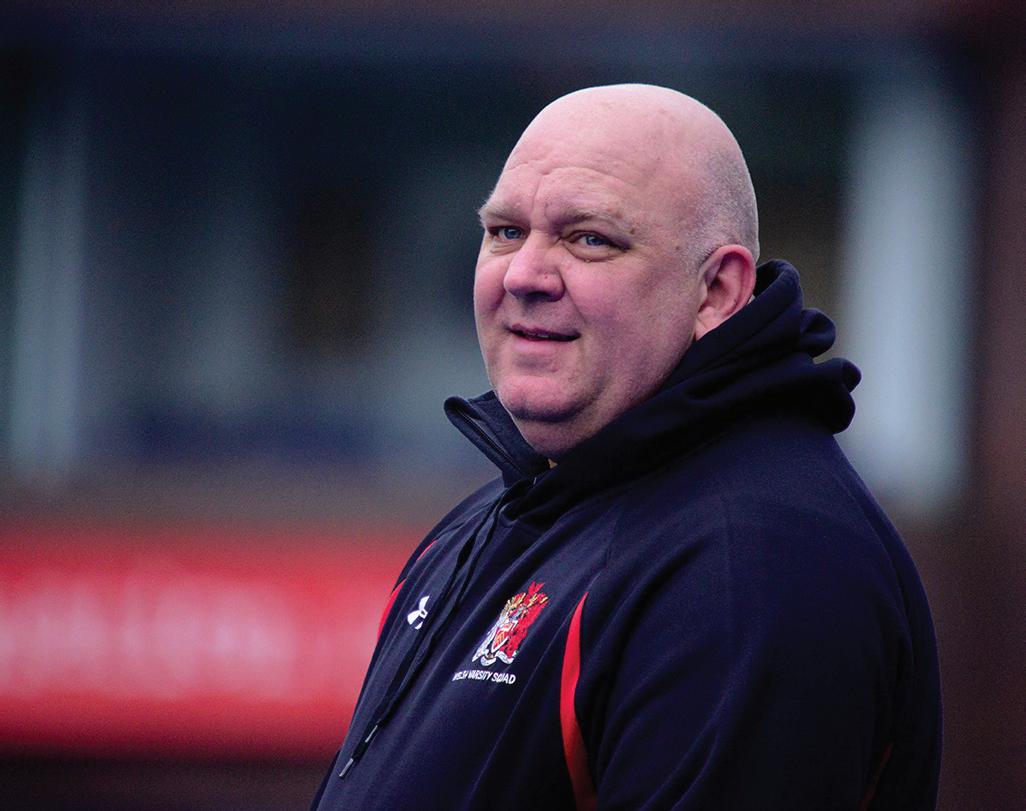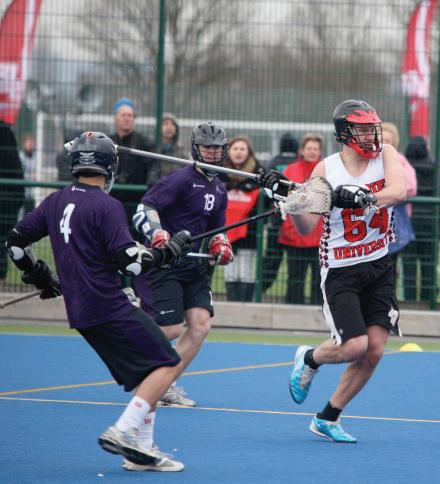gair rhydd





Tom Eden Editor
A policy to pay every single member of Cardiff University staff at least the living wage was officially approved last week.
The move by the University to seek accreditation as a ‘Living Wage employer’ was proposed by the newly promoted Acting Chief Operating Officer, Ms. Jayne Dowden.
She put the proposal to the University Executive Board (UEB) on Monday 17th February and says the move has the full support of the Vice Chancellor, Professor Colin Riordan, adding that, “He is personally very committed to this.”
It is believed that, if the application is successful, Cardiff University would become the first University in Wales to be an accredited Living Wage employer, paying a minimum hourly rate of £7.65.
Ms. Dowden told gair rhydd of the news from her office where a bunch of flowers stood next to a large ‘Thank You’ card, given to her by some of the University’s cleaners who had benefited from this decision.
She explained that it has been a lengthy and complex project to get off the ground, not least with the nature of the cleaning contracts.
“We have thirteen separate cleaning contracts so we had to change the terms and con-
ditions of each company’s contract and now every single cleaner is paid the Living Wage.
“This has made a real difference to people’s lives and this [the flowers & card] is a very moving gesture.”
Ms. Dowden made clear that a wide range of people had been working on getting the University to a stage where it was able to apply for Living Wage accreditation.
Continued on page 7 >>


Where else to start but this week’s front page story? Following last week’s issue, which contained a strongly written piece about why the living wage is essential (and in doing so may have criticised the University and Students’ Union), I received several missed calls from the University’s Public Relations department.
Naturally, I thought I was in line for a stern word or two, but as the piece was an opinion piece, was fairly happy that we had done nothing wrong. It is certainly not the first article that we’ve included advocating the living wage and it’s something that has my wholehearted support. It also received majority support from the Union’s democratic body; Student Senate.
Once I did finally end up speaking to the University’s PR team, it was with some shock that I found out that Jayne Dowden - the new Acting Chief Operating Officer (effectively the Vice Chancellor’s right hand man or woman when it comes to running the non academic parts of the University) - was submitting a paper that, if passed, would mean the University’s official policy would be to pay every single member of staff at least the Living Wage (£7.65).
The proposal was passed, apparently with the full backing of the VC, and I met with Jayne Dowden on Tuesday morning to find out more.
As soon as I walked into her office, the first thing that I noticed was a big bunch of flowers and one of the biggest ‘Thank You’ cards I’ve ever seen. It was explained that these were gifts from some of the cleaners who would be benefiting from this pay increase to the bottom earners at the University.
Jayne was, quite rightly, very touched by this gesture and was clearly very proud to be able to talk about this progressive and positive decision.
Cari, the SU President, speaking about the new policy said ‘‘It is important that the University truly values the staff who make its existence possible and this move is one which
demonstrates that.’
I couldn’t agree more, but alongside the staff there is another vital stakeholder in this University: the students.
This decision to seek Living Wage accreditation came in the same week that the UCU union announced that some of it’s members will refuse to mark exam papers in the next stage of its strikes to secure higher pay.
On both a personal level and as an Elected Officer, I support the cause of the staff who feel like the 1% pay rise offered for lower paid tiers of the University is very unfair, especially when compared to the alleged five per cent increase for the Vice Chancellor. However, there is no way that the staff should be using students as hostages in this fight for more money. Refusing to mark exams and essays is undeniable a bold move and one which will certainly gain the attention of the national pay body (it’s not something individual universities have control over), however it could mean students aren’t able to graduate when they should.
From my position, as a student representative, this is absolutely unacceptable, and the Students’ Union has quite rightly withdrawn its support for the action. You can read more about this on page 4.

On Saturday, the Great Hall was host to the annual Go Global spectacular. I was lucky enough to be in the audience and it was an incredible evening with a hugely diverse range of acts, from Bellydancing to a hilarious adaptation of Aladdin.
Every single act had clearly put a vast amount of preperation in, and they all deserve massive credit - it was such a good night! If you weren’t able to go, or just wish to re-live it, then I have some good news. Cardiff Union TV (CUTV) were there and filmed the whole thing and it’s available to watch on their website and youtube channel. Just head across to www.cardiffunion.tv to see what I’m on about!
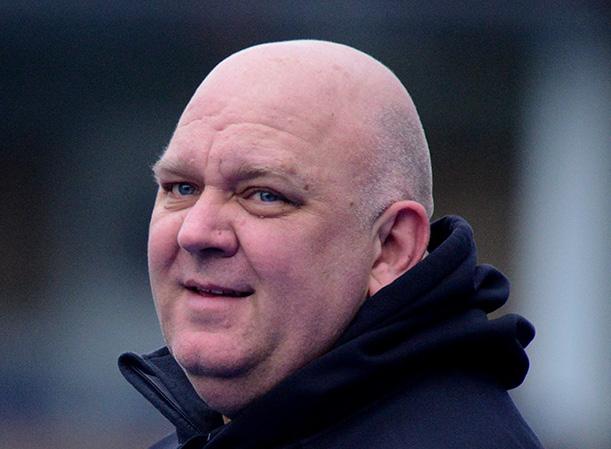
‘The Bald Head Said...’ may go down as one of my lasting regrets as Editor of this paper. The man above is Martyn Fowler, who has been Head of Rugby here at Cardiff for the past eight years. This year, he has become quite the cult icon within the Media Office as the Sport team have somehow managed to include him in the paper on a near-weekly level.
Because of his prominence within these pages, we regularly suggested he should have a column. Suggested names for this proposedcolumn included gems such as ‘Fowl Play’, but we settled on ‘The Bald Head Said...’ due to Martyn’s trademark afro. Obviously.
It is with sadness, then, that we found out Martyn will be leaving in the very near future, leaving the ‘Bald Head Said...’ as one of those pipe dreams that unfortunately never materialised.
All the best for the future, Martyn.

EDITOR
Tom Eden
CO-ORDINATOR
Elaine Morgan
SUB EDITOR
Jacob Dirnhuber NEWS
Ashley Bebbington
Max Eshraghi
Georgia Hamer
Rowan Whittington
OPINION
Olivier van den Bent-Kelly
Gareth Evans
Beth Lyons
COLUMNIST
Jess McFarlane
Charlotte Wace
POLITICS
Matt Harding
Greg Landon
SCIENCE
Scott Davies
David Mason
SOCIETIES
Bryony Price
CSM LISTINGS
Anthea Crowe SPORT
Rory Benson
David Hooson
Ross Martinovic
Arthur Russell
CONTRIBUTORS
Taliesin Coombes
Thomas Bamford
Sum Sze Tam
Anna Lewis
Katie Evans
Bronwen Weatherby
James Griffiths Oli Dugmore
Matt Hale
Lilly Harper
Daniel Faraz Alauddin
Matthew Jones
Helen Wilson
Michael Arnott
Geraint Harries
Gareth Short
Harry Thompson
Jon Chapman
Jack Di Francesco
Kirstie Smith
Vidya Brainerd
Lisa Childs
Nilarnti Vignarajah
Aaron Mathai
Jake Smith
Steffan Bryn Jones
Melda Lois Griffiths
Eliza Nicholas
Ellie van Klaveren
Joe Atkinson
Paul Davies
Sam Kimish
Steffan Thomas
Anna Athanasiadis
Holly Duhig
Lillith Hickling
Bryony Humphreys

Thomas Bamford News Writer
The University College Union’s (UCU) proposed ‘marking boycott’ is planned to go ahead, a move intending to resolve the on-going pay dispute between universities and their staff, which would have a negative impact on students.
Graduations are at risk if the boycott is to proceed, as the action threatens to leave students without the final marks they need to gain their degree. Additionally, it could leave second and third year students without their grades until the pay dispute comes to an end.
Last week UCU announced that it had given staff ‘the green light’ for the proposed marking boycott if universities failed to broker a deal over fair pay for its staff. As part of the protest, staff that are UCU members could refuse to mark essays, portfolios, dissertations and exam scripts for all undergraduates and postgraduates at British universities.
Dan Ashley from UCU stated: “The pay dispute is a national one. We would urge all Cardiff students to lobby the vice-chancellor to put pressure on the UCEA [University and Colleges Employers Association], who do the negotiating on behalf of universities, to come back to the negotiating table to seriously talk about pay and get the dispute resolved before the marking boycott starts in two months’ time.”
As dissertation deadlines edge closer, it is unclear how students would be able to graduate or progress with their degrees if the boycott were sanctioned. This boycott would also affect students waiting to receive their grades in order to apply for placements, jobs and years abroad.
Cardiff University Students’ Union have distanced themselves from the plans, releasing a statement saying: “Cardiff Students’ Union recognises the right to industrial action and has previously supported UCU’s exercise of that right… for industrial action to be effective, it has to have impact. Unfortunately, that impact is often felt by the wrong people and in this case will be felt primarily by students.”
“Cardiff Students’ Union exists to represent students at Cardiff University and works to improve their student experience. The prospect of Cardiff University students not receiving their grades for assessed work and therefore potentially not being able to graduate means that we cannot and do not support this action.”
Third year History and Politics student, Steve Plowman, expressed his concern over the upcoming strikes: “It’s obviously quite disconcerting that we may not graduate this summer. We are plaintively stuck between a rock and a hard place, between the UCU and the university, as the strikes show no sign of abating. It could potentially disrupt our job applications and could ruin our sum-
‘‘
The prospect of Cardiff University students not receiving their grades for assessed work and therefore potentially not being able to graduate means that we cannot and do not support this action.
Cardiff University Students’ Union official statement
mer.”
The last marking boycott took place in 2006, once again over pay issues. University staff engaged in the ‘mark and park’ boycott method, marking the essays yet refusing to release them to the general public until pay disputes were settled.
The latest action follows the strikes of October and December last year, where dispute escalated over universities’ failure to better their offer of a 1% increase in wages. The UCU suggested that this was “an insult too far.”
University staff have endured a 13% reduction of pay since 2009, this statistic made all the more appalling as Vice Chancellors in the Russell Group Universities have received an average salary increase of 8.1% in the last year, the average pay-packet equating to £314,000.
The UCU have stated that a marking boycott could still be averted if the employers of the UCEA agree to ‘serious’ negotiations, having until now refused to engage in any dialogue regarding pay.
The UCEA released a statement this week: “HE [higher education] institutions will certainly be disappointed that the UCU is still threatening a marking boycott, as this is action that is once again aimed directly at students’ education.”
Sally Hunt, the General Secretary of the UCU refuted this ardently, suggesting that: “Throughout the dispute we have been calling on the employers to minimise disruption
to students and sit down and talk to us seriously about pay. They have refused. It is their obstinacy that has forced our hand with the marking boycott.”
There have been six strikes since October 2013, causing disruption to scheduled classes for both postgrad and undergrad students. Students are becoming increasingly frustrated as the bickering between unions and universities continues to affect their education.
Vice Chancellors at Russell Group universities have enjoyed an average pay rise of 5.1% last year, with an average salary of £235,000 - the UK Prime Minister earns £142,000 in comparison. As a rebuff to proposed strikes, Vice Chancellors threatened to dock a days full pay for the two hour demonstrations that took place on the 23rd of January 2014.
A recent article in the Financial Times suggested that there had been a steady decline in the pay of further education lecturers and teachers since 1975. It also states that almost one in ten of University lecturers made up the top 5% of earners the same year.”
It has also been revealed that university staff are being paid less than their contemporaries in other English speaking countries such as Australia, Canada and the USA. Only New Zealand’s academics earn less than those of the UK. Yet the UK’s higher education system is ranked second out of the 50 countries for the results that they produce.
Sum Sze Tam News Writer
On February 13th, Cardiff University students and staff conducted a ‘Love Your Cleaner’ campaign to celebrate and publicise the successful negotiation of the Living Wage for all subcontracted cleaners on the university campus. The event was publicised over twitter using the hashtag #LoveYourCleaner.
Standardised memos thanking the cleaners on behalf of the students and staff were posted around the toilets and cleaning cupboards in many of the university’s main campus, including the Law, Sir Martin Evans, Bute, Glamorgan, Redwood, and John Percival Buildings. Several academics wrote personalised thank-you cards and letters to the cleaners, leaving them in their own personal offices where they could easily be found.
Some students and staff expressed doubt regarding the action, as putting up memos and cards that would eventually have to be disposed of might be construed as causing more work for the cleaners, and

self-contradictory. However, the visible reaction to the action has been very positive, with many academics finding personalised replies to their memos the following morning.
The ‘Love Your Cleaner’ action was also a celebration of the hard work that cleaning staff at Cardiff University do. Many of them have commented that the action was a refreshing break from the usual feeling of being overlooked by the university, despite the important contribution their work makes to the smooth functioning of the institution.
In addition, the standardised notes provided cleaners with the option to text in with feedback or any significant complaints that they had with their current work conditions. Texts received since have included suggestions for further campaigns and action, and expressions of gratitude for the appreciative gesture.
The action follows a milestone achievement realised by the Cardiff University Living Wage campaign that has lasted over one and a half years, though the campaigners emphasise that the accreditation of Cardiff University as an official Liv-

ing Wage employer is still their final goal.
The effects of the Living Wage on the university’s cleaning staff has immediately become apparent, with one of the university’s cleaners saying that they could now afford to buy presents for their grandchildren. Another cleaner expressed how the Living Wage allowed them to rent out a flat in Cardiff, rather than having to live in and commute from Newport, where their living conditions had been highly unpleasant.
Thank-you cards were also issued to several members of the university’s Executive Board and Council, to express gratitude for their decision to work towards a Living Wage. Enclosed within these cards were blank thank-you cards and envelopes, in an attempt to encourage these members of staff to acknowledge the difficult work of the cleaning staff themselves.
This event was organized by Citizens UK, a community-organising body who aim to unite members of local communities and galvanise them into taking action to improve the lives of everybody involved.

Anna Lewis News Writer
Following the publication of a new report, the Committee of Public Accounts has revealed that the government has dramatically underestimated the cost to the public of unpaid student loans. While the government has predicted that 35-40% of student loads will never be repaid, the committee has now stated these figures are up to 8% lower than expected.
Following the rise of university fees to £9,000 a year, it has been predicted that there will be £200 billion worth of outstanding loans by 2042 compared to the current student debt of £46 billion. Since student loans were introduced in 1990, there have been no reliable
models to help forecast how much will be paid to the Exchequer from student loan repayments.
The committee also criticised the government’s current lack of information concerning the debts of British and EU students who have moved abroad following graduation. It was revealed that the Students Loans Company have lost contact with over 350, 000 graduates who are not repaying their loan despite being classified in the ‘repayment’ category. This loss of communication has been partly attributed to the inadequate IT services and premiumrate phone lines used by these companies discouraging students from further contact.
As a result of these issues, the Committee of Public Accounts has proposed a set of recommendations to improve the situation.


These include setting more meaningful targets for debt expected to be collected and improving transparency. Furthermore, it has been suggested that the department and student loans companies should work together in order to share data about borrowers’ whereabouts and earnings to help identify previously undetected fraud.
In a response to the report, the Department for Business, Innovation and Skills has stated that it is ‘improving the collection process for borrowers’ and ‘will carefully consider the PAC’s recommendations as part of this programme.’
The department has also stated that they are developing “a new and more accurate forecasting system,” in the hope that they will have a more reliable service in the future.
Katie Evans News Writer
Cardiff University is set to embrace the growing trend of an electronic readership with the provisional addition of 25,000 ebooks to its Library catalogue.
From March 6th, the electronic books will be available for a trial period through the LibrarySearch catalogue where students can then ‘rent’ the e-books for seven days at no expense to themselves. An e-book rented three times by different users will then be bought by the Library and added permanently to stock.
A capped amount of money has been reserved for this meaning only the most rented e-books will remain available after the trial period, the launch of which coincides with the annual ‘E-Book Week’, running from March 2nd
to the 8th, dedicated to encouraging and connecting e-book readers worldwide.
Currently, the Cardiff University LibrarySearch only stocks around 1,000 e-books and so the temporary availability of tens of thousands of electronic books is an opportunity for students to access beneficial resources that would otherwise be unavailable.
A spokeswoman for the University Libraries said: “We are hoping that this will enable students to find new titles which are not on reading lists but which are still relevant to their studies.”
There has been a 35% increase in e-book purchases in the past year. The number of printed books added to Cardiff University libraries has increased by 20% from the academic year ending 2012 to the academic year ending 2013.
Bronwen Weatherby News Writer
As a part of a prestigious global scholarship programme designed to create close relationships with future decision-makers, Cardiff has welcomed around 50 Chevening scholars to the university who are posed to be the future world leaders.
The future world leaders, including two Cardiff students are visiting the university as part of a series of events organised to enable them to widen their knowledge of the UK and meet fellow students.
Chevening is a global scholarship programme run by the UK government as a key part of their diplomacy effort, standing to encourage young professionals that display excellent leadership skills, to study in the UK.
“The Chevening programme is one of the most prestigious international schemes, awarding scholarships to help the world’s emerging leaders study in the UK,” according to Vice-Chancellor, Professor Colin Riordan.
“With Cardiff University’s renewed commitment to the internationalisation agenda, I am delighted that not only are we able to support the programme
but we can play our part in helping to create lasting positive relationships with the world’s future leaders, influencers and decision makers,” he added.
After being met by the University’s Vice-Chancellor
Professor Colin Riordan and Pro Vice-Chancellor for International & Engagement, Professor Hywel Thomas, their visit included, receiving a presentation on the Welsh language, as well as a visit to the Welsh Assembly, where they were briefed on welsh politics.
The programme funded by the Foreign and Commonwealth office (FCO) gives scholars the opportunity to pursue a one-year Master’s degree in a subject of their choice at any of the UK’s leading universities.
Chevening scholarships are offered in 118 countries worldwide, this year marking the 30th anniversary of the programme.
British Embassies and high commissions throughout the world personally select scholars, and there are currently around 42,000 Chevening alumni, forming one of the most influential and highly regarded global networks.
Scholars have gone on to reach highly influential positions, alumni including those in Politics, Business and Banking.

James Griffiths News Writer
A free online course, run by FutureLearn in conjunction with Cardiff University, is aiming to widen understanding about Islam and the lives of Muslims in the UK. The course, ‘Muslims in the UK: Changes and Challenges,’ will be using Britain as a case study to shed light on broader issues concerning the growth of Islamic communities across the culturally Christian and increasingly secularised Western World.
Professor of Religious and Theological Studies, Sophie Gilliat-Ray, will be leading the course, to start on March 10th, along with Dr Muhammad Mansur Ali, Lecturer in Islamic Studies, and development officer Mark Bryant. The course intends to break down the stereotypes of Muslims in Britain
that are often perpetuated by the media.
The course addresses media representations of Islam, which are often shown to be predominantly negative - often placing discussion of Islam within the context of extremism. The course looks to move away from this viewpoint and give its students an understanding of what Muslim communities in the UK are really like, by looking at the lives of Muslims who live in Cardiff specifically.
A wide range of topics will be covered in the four-week course including the History of Islam in Britain, how Islam has influenced British society and the well-established associations Britain has with the countries from which British Muslims originally hailed. It will also provide an outline of Islamic beliefs and practice, a look at the various viewpoints within Islam,
patterns of settlement that British Muslims have followed, the cultural diversity within Islamic communities in the UK, and how all of these factors affect contemporary debates surrounding Islam in the Western world.
Lead educator of the course, Professor Sophie Gilliat-Ray said, “We’re really excited about hosting this course, because we want to give people a better understanding of some of the challenges and issues that face Muslims in Britain today, from the perspectives of Muslims themselves.”
FutureLearn is a part of the Open University that runs many courses alongside leading universities and cultural institutions, and is running a large number of pilot courses this year. The “Muslims in Britain: changes and challenges” course is one of two “MOOC”s run by Cardiff University, the second being JOMEC’s “Community Journalism.”
More information on the course can be found at “futurelearn.com/ courses/muslims-in-britain

Ashley Bebbington News Editor
Social media website Facebook recently increased the number of gender options available to users to 50 in a bid for greater tolerance of minority gender identities. The 50 options including ‘transgender,’ ‘bi-gender,’ and ‘transsexual,’ will give users the option to be referred to as ‘they’ rather than ‘he’ or ‘she’, and will allow users to control who their gender identity is shared with.
The change has been announced in the midst of LGBT+ history month, and the Sochi Winter Olympics, which have been at the centre of a furore regarding LGBT+ rights in Russia. In a post on the ‘Facebook Diversity’ page, the social media giants said: “We… offer an extensive list of gender
identities that many people use to describe themselves… in an authentic way.”
Cardiff Students’ Union’s LGBT+ Officer, Adam Duce, supported the change, saying: “It’s very pleasing to see that Facebook is making such a stance of inclusion particularly during the civil unrest in Russia highlighted at the Winter Olympics. I know a lot of people who identify outside the gender binary are very pleased with this recognition of their gender identities.”
Speaking to Associated Press, Facebook engineer, Brielle Harrison, said: “There’s going to be a lot of people for whom this is going to mean nothing, but for the few it does impact, it means the world.” Harrison, who is undergoing gender transition from male to female, said that she has changed her Facebook gender from
‘female’ to ‘trans-woman.’
The changes made by Facebook place the website ahead of its competitors in tolerance of gender minorities. Google+ only offers three options, ‘male,’ ‘female,’ and ‘other.’
This progressive move has been widely supported, with large numbers of appreciative comments being posted on the Facebook Diversity page. However, some LGBT+ groups believe it should go a step further.
Some believe that more options should be added, whilst others think that there should be no gender options, allowing users to input their own response. Additionally there have been calls for the allowance of family relationships beyond ‘son’ and ‘daughter’ to be added, as well as an increased number of sexual preference choices.

Oli Dugmore News Writer
The Office for Fair Trading (OFT) has told universities that preventing students from graduating because of non-tuition fee debts may be a breach of consumer law.
OFT has written to more than 170 UK universities and other higher education groups warning that halting graduations for debts such as library fees or accommodation debts could be illegal. This follows complaints by the National Union of Students (NUS) regarding the alleged widespread practice by universities of using academic sanctions to enforce non-tuition fee debt.
Of the 124 universities initially contacted by OFT, 75% of the 115 respondents were found to use a system that breaches several pieces of consumer law.
The letter written by the OFT expressly states that universities should refrain from potentially unfair and/or unreasonable terms and practices, before recommending a review of rules and regulations.
Nisha Arora, Senior Director of Consumer Enforcement at the OFT, has highlighted the approaches used by the other 25% of universities in the study, before stating that others needed to change their ways in light of this:
“Preventing progression or graduation not only affects students’ educational experience but could also significantly harm their future employment prospects and ability to pay off debts.”
One alternative approach advocated by the OFT is the limitation of the service related to the debt, such as denying access to library facilities until late fees have been paid. This system would bypass illegal activity.
Aside from the disputing the legality of such academic sanctions, the NUS also argued that the punishments were disproportionate to the offence.
Colum McGuire, the NUS’ vice president for welfare said: “I’m delighted to see that the OFT has responded to our complaints and confirmed that this practice is incredibly unfair.”
“It’s almost laughable that students who are in thousands of pounds worth of tuition fee debt were having academic sanctions placed on them for money owed for non-academic debt.”
“Students who owe money for accommodation, overdue library books or other non-academic debt should certainly pay off the money they owe, but this sanction was disproportionate, and actually made it more difficult for students to repay by restricting access to student support, or making it more difficult to secure employ-

ment in an already challenging job market. Universities... now need to review their policies.”
Under Cardiff University’s Rules of Behaviour, which applies to all students of the University, it is stated that: ‘a student shall pay all fees and other money owing to the University in accordance with University Financial Regulations. If payment is not received the University may initiate proceedings under the Procedure for Payment
of Tuition Fees and Other Monies’.
The Procedure for Payment of Tuition Fees and Other Monies states that if a student does not pay their debt in accordance with appropriate procedure, ‘the University also reserves the right to refuse permission to attend Graduation, and to withhold any certification/references confirming an award’. This clause regards tuition fees, but also relates to residential
charges and ‘other monies’.
A Cardiff University spokesperson confirmed that the University is yet to be contacted by the OFT, adding that: “the University ensures that every opportunity is given to students to clear educational debts.” It was also confirmed that unresolved educational debt may result in a student being prevented from graduating, and that library fines in excess of £30 were included in the term ‘educational debt’.
<< Continued from page 1
One of the most prominent figures to have pushed the agenda was Dave Sheppard, the University’s Cleaning Services Officer, with Ms. Dowden commenting that, “He has worked tirelessly to make this happen.”
Mr Shepherd explained that, ‘Back in 2012 I submitted a paper outlining the business benefits of adopting the Living Wage for contracted cleaning staff within the University. I believed that it would enable us to attract and retain the highest calibre of staff in what is traditionally an under valued occupation, and increase competition between potential suppliers.
“Detailed budget proposals had to be prepared as the cost implications of adopting the Living Wage were substantial. Once these had been agreed we met with all the current contractors to advise them of our proposal and to determine any potential barriers or difficulties in implementation.
“New contract prices were invited and approved and I am delighted to say that with effect from 1st Janu-
ary 2014 the Living Wage was implemented for all contract cleaning staff within the University and it is something of which the University can be justifiably proud.”
The University has been widely praised for this announcement.
‘‘
This is fantastic news. I congratulate Cardiff University unreservedly.
Owen Smith MP Shadow Secretary of State for Wales
The Shadow Secretary of State for Wales, Owen Smith MP, who said, ”This is fantastic news. I congratulate Cardiff University unreservedly for being the first Welsh University to implement a Living Wage policy.
The Living wage has the potential to transform the lives of working men and women in Wales and we need more public and private sector institutions to introduce it for employees and contractors.”
Cari Davies, the Students’ Union President also backed the University’s policy. She said, ‘I’m extremely pleased that Cardiff University are committed to becoming a Living Wage employer, it’s a campaign that students have shown a passion for and backed through our democratic processes.’
‘It is important that the University truly values the staff who make its existence possible and this move is one which demonstrates that. The Students’ Union hopes to join the University in securing accreditation and whilst all full time staff are paid the living wage, there is some work to do before all casual and parttime staff can be offered the same.’















Matt Hale Opinion Writer
Cardiff Students Union recently announced that their night club, Solus, is to be upgraded as part of a multi-million pound redevelopment of the Union’s second floor. Having been a near ever presence at both the Lash and Flux this year, I can only view this as a positive move. Whilst Solus has its own unique charm, there comes a point where seemingly endless Yaya/ Kolo renditions can no longer mask its obvious deficiencies.
The primary reason to support these developments is undoubtedly that Cardiff already has an outstanding Students’ Union. To be voted the best Union in the country for satisfaction in 2013 by The Telegraph is no small feat and is something that should feature more prominently in advertising campaigns. It is precisely because the Union is so strong that it needs to reinvest in infrastructure to maintain its position. The likes of Leeds and Sheffield will not remain static in the years to come and neither should we. Considering this, whilst Solus is a good facility with ample space, it is simply not finished to an acceptable standard. There are certain areas of the second floor, which the redevelopment team rightly labelled as ‘visibly tired’. Some of the décor needs to be brought into, if not the 21st century then at least the 20th century.
Students’ Union President, Cari Davies, also stated that as part of the redevelopment, Solus would be converted into much more of a ‘Common Room type space.’ Currently, the room is rarely utilised between the hours of 8am and 8pm and is only really suited to its nightclub role. Hitherto I can only remember entering the night club before darkness falls once and that was part of my three hour wait for a wristband during Freshers week! This is definitely a space that could be used more productively in daylight hours, especially when the building is operat-
ing at capacity. Any measures that mean extra space in the Taf should be given the highest priority.
Some highlights of the conversion include the much needed addition of natural-light through a ‘glazed roof structure’. The idea of a night out with friends star gazing at the Lash does have something of a romantic quality to it. Moreover a delightfully named ‘Mezzanine’ (fancy balcony) will be installed. This should bring a sort of amphitheatre feel to the room. Standing up there, I for one would feel like Caesar at the Coliseum, looking down at the Lashiators doing battle below.
There is the obvious argument that this money could be better spent on other facilities more closely linked with academia. This is a valid grievance. However, like it or loathe it, nightlife is important in attracting future students to any university. Again, you could argue that Cardiff already has sufficient clubs to fulfil all your twerking needs. Yet on open days, short of organising a daylight Carnage for attendees, there is no way for visiting young people to assess the quality of town’s nightlife. So if their only impression of the night life here is a tour of the often submerged Solus toilets, it will be hard to sell Cardiff as a clubbers dream.
Another, perhaps flippant, reason to support the change is that it will see the name of the night club changed, subject to a student vote. The current venue does have a slightly ambiguous title depending on regional accents. Perhaps I am amongst the more easily irritated of undergraduates, but I take an instant dislike to those who pronounce it ‘Soulus’. Thus, a move away from ambiguity will quell my internal rage somewhat.
Without question, £3.3 million is a vast amount of money; you could sign a decent Premier league squad player for that. However it is an investment that Solus desperately needs to keep pace with other leading Student’s Unions in the country.

need to be redevloped?
Lilly Harper Opinion Writer
‘‘Highlights of the conversion include the much needed addition of natural-light through a ‘glazed roof structure’. The idea of a night out with friends star gazing at The Lash does have a romantic quality to it
‘‘
The whole appeal of Solus comes from being able to strut through those double doors like you’re in a Beyoncé video straight onto a packed dancefloor
The old phrase “if it ain’t broke, don’t fix it” seems relevant when applied to the intended changes to Solus. The multi-million pound redevelopment project of the Students’ Union was recently approved, and plans are under way to make various changes within the building, which include renovation to our beloved Solus.
The Students’ Union’s club is a frequent nightspot for students from all years of the University on both Wednesdays and Saturdays and anyone would be hard pushed to find a Cardiff Student who doesn’t have a fond story to tell about the club. Despite the sweat pit of a dance floor, the sticky floors and the classy plastic cups, the venue manages to reach its capacity of 2,200 people pretty much every night it opens, and students continue to pay up to £5 entry per night, so why does it need changing?
The initial plans for the redevelopment include exciting features such as a staircase to CF10 and a “mezzanine balcony.”
(For people as uncultured as me, that’s another floor in between the current two levels of the club). The article which was available on the Students’ Union website states that the project aims to ‘modernise and diversify’ the entire second floor, and the plans will involve closing the club for the rest of this year before re-opening at next year’s freshers’ with a possible new name and a new look. Essentially, the plans aim to put an end to Solus as we know it.
The designers are trying to create a space that can be used for more than just drunken revelries and fooling around with strangers.
I don’t quite understand why you would change an area
designed to be a nightclub into somewhere for people to sit down and chat about their day. It sounds all too similar to that room on the third floor we all stumbled into once during freshers week and never went back to.
For me, the whole appeal of Solus comes from being able to strut through those double doors like you’re in a Beyoncé video straight onto a packed dance floor. The DJ is probably playing something guaranteed to be in the charts and you’ll be able to find at least 17 people you know within the same number of minutes. It may be a lone opinion but I’m not thrilled at the idea of weaving between seating and up and down the seemingly pointless new mezzanine floor to try and find an area large enough to bust some of my finest moves.
Perhaps the worst thing about this whole ordeal is the potential loss of the name. Just hearing the word Solus in a passing conversation can bring back a plethora of brilliant memories from Lashes past, Dusk til Dawn or Drink the Bar Dry. The redevelopment is not only robbing Solus of its character, it could even be taking its identity. To add further insult to injury the project manager has even cruelly described Solus as “tired and dated,” but like I’ve said, this doesn’t stop the venue selling out night after night. So the question still remains - why is an unfathomable amount of money being spent on a development that has limited benefits for the student body?
Much like the introduction of “Flux” this year, I’m sure the whole thing will take some getting used to. Similar to my inability to let go of Come Play I’m adamant I’ll still be mourning the loss of Solus until my graduation in 2017. It might be a sweaty dungeon but it’s our sweaty dungeon and we love it just the way it is.
Danial Faraz Alauddin Opinion Writer
Recently, The Daily Mail, the echelon of journalism, published yet another article of hate and fear mongering, intended to demonize and tar the Muslims of Britain. The article I refer to is entitled “Jolly Jihadi Boy’s Outing to Legoland” published on Febuary 18th on their website.
The article picks up on a community event of a family fun day in Lego Land organised by the Muslim community in East London and turns it into a plot of extremism and terror training.
This narrative of sensationalising everything to do with the Muslim community has become far too common. Almost every article they publish regarding Muslims is negative, full of deceit, and, sometimes, outright lies, all with the intention to scaremonger their readership into thinking the Muslim community is evil and has sinister plots to take over the country. Their regular crusade to demonize the entire Muslim community is in fact, so common, that often we, as British Muslims don’t bat an eyelid to it anymore.

The following are extracts from the article:
9.50am Rear coach packed with explosives stops in Parliament Square. As Big Ben strikes ten, driver will blow himself up, en route to Paradise, where 72 virgins await. In the event of heavy traffic, he will detonate in the Blackfriars underpass.
10.30am Arrive Legoland, Windsor. Coaches containing women and girls to use segregated car park and entrance at rear. Guests are reminded that music and dancing are punishable by death. Mobile phones are also prohibited, because they may inadvertently set off the hi-viz suicide vests being worn by our own security personnel.”
3pm Guests assemble at the Pirate Shores attraction, where they will be treated to a re-enaction of a typical pirate raid off the coast of Somalia. Thrill to the true story of Captain Phillips as brave Somali freedom fighters defeat the might of the Great Satan’s Navy Seals.
These are just some of the apparently satirical events in the alleged timeline of the day. Reading through the rest of the timeline only reveals further hatred, packaged in the guise of satire and free speech.
Would this perpetual and persistent demonization of any other community be tolerated?
Consider this; if the Jewish community, or the Afrocaribbean community, or indeed any other community had hired out Lego land for a community family event?
Would any disgusting stereotyping, based on the actions of a few to tar the majority, been printed? Such stereotypes are disgusting, and rightly so would never be published. Why is it then that equally disgusting stereotypes of Muslims can be, and are continually, published?
Promotion of a violent, extremist Muslim stereotype can lead to horrific acts of violence, such as the case Pavlo Lapshyn and his campaign last year in which he murdered an elderly pensioner and bombed three mosques in the Midlands, as well as the numerous acts of arson that the English Defence League (EDL) have been responsible for. Thankfully these
cases of such extreme viciousness are rare but the fact they happen at all shows an underlying unrest amongst some people. An unrest which an individual may be encouraged to act upon if such stereotypes are constantly pushed as the norm.
The only purpose of these stories is to serve as some sort of
justification to those who wish to persecute this minority. In an era of increasing community tensions and aggression against the Muslim community, these sorts of sensationalist stories only fan the flames. How long can the Daily Mail be allowed to publish such sensationalist stories under the façade of news?

Matthew Jones Opinion Writer
Last week marked the 67th British Academy Film Awards, hosted by National Treasure (because that title seems to be given out like, well, BAFTAs these days) Stephen Fry to the lowest viewing figures since 2010. With all this pomp and ceremony (even the Duke of Cambridge was there!) and some embarrassing efforts to appeal to a younger audience (again involving Prince William), we ask whether these award ceremonies need to step up their game to stay relevant. Here I present an assortment of the cringe-worthy, the upsets and the Tinie Tempah moments of the BAFTAs 2014.
Linings Playbook’ last year was totally deserved and she is probably the most down to earth star around. Yes, Lawrence’s turn is probably the standout performance in an extremely well-acted American Hustle, but she didn’t even turn up to accept her award! I was watching with a few mates and one of them, who’s a little enamoured with our Jennifer (aren’t we all), visibly sunk in his seat when he found out she wasn’t in attendance. Yet she still won Best Supporting Actress! Let’s face it, there’s no stopping the Jennifer Lawrence train. She could spend an hour and a half on screen picking the fluff out of her bellybutton and we’d queue round the corner of the cinema to see it. Myself included. Luv u J-Law.

Grime superstar Tinie Tempah and Laura ‘the one your mum likes’ Mvula were drafted in to kick off the show with a song so wet it sounded like it had spent the last week sat in Bute Park. Yet the audience were still baffled. Perhaps it was a little bit too urban for the Hollywood elite? Everyone knows Tom Hanks is a Tinchy Stryder fan anyway. At least it was not another ‘You’ve Got the Dirtee Love.’ But then it happened. Tinie Tempah actually went and high fived the future King of the United Kingdom. I wonder if, in 50 years’ time, when the Colin Firth-starring Oscarwinning story of Prince William’s life is released, they’ll include this moment. (doubtful).
I won’t lie; I’m a big fan of Jennifer Lawrence. Her Oscar win for ‘The Silver
Another awards ceremony, another instance of Leonardo DiCaprio not getting recognised for his work in the fantastic The Wolf of Wall Street. Do you think he psyches himself up in the mirror before every
ceremony and tells himself he’ll win this time? “Come on Leo, you’re the king of the world!” I’d like to believe he does that chest-beating chant from The Wolf of Wall Street. If matters weren’t bad enough for poor old Leo, host Stephen Fry actually made him blow a kiss to the camera. HE’S NOT IN THE BEACH ANY MORE OKAY? HE’S A SERIOUS
ACTOR NOW. Somebody give that man an Oscar. Or at least a hug.
As a man who cannot grow facial hair to save his life, this next section will probably sound a little bitter, but where the hell did all those beards come from? Even Stephen Fry asked for beard advice on Twitter just before the ceremony. Clearly it was an important factor in the amount of screen time you got. There’s a reason the camera lingered on Chiwetel Ejiofor instead of Tom Hanks (yeah, I know he won Best Actor, but you get my point).
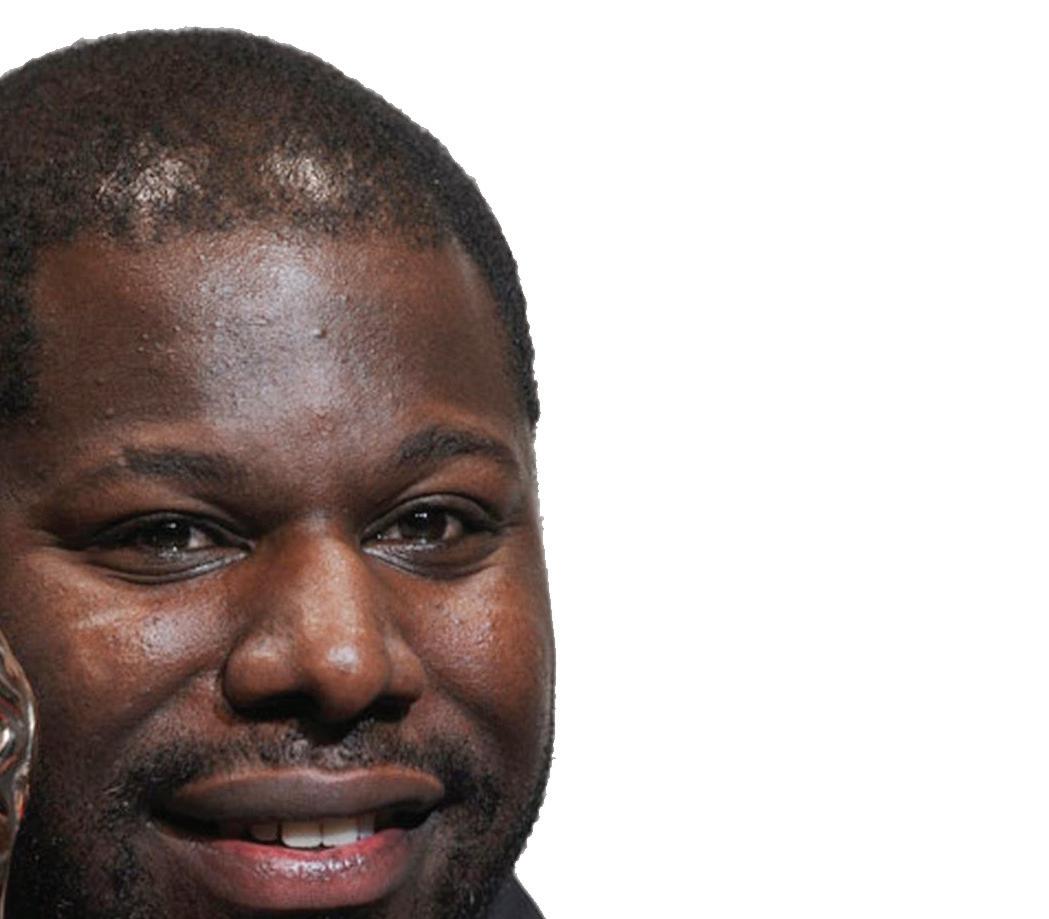
There’s even a video clip doing the rounds of Michael Fassbender nodding at Ejiofor as if he knows his beard is the best. So Leo, if you hope to have any chance on March 2nd, you
better get a hold of some hair and PVA glue. In an uncertain world where Matthew McConnoughay and Jared Leto are winning awards, you need all the help you can get. Okay, this one is a little bit pernickety, but one of the things that really bothered me about the BAFTA’s was the insistence in showing clips from films that clearly gave away the entire plot. One unforgivable instance of this was when the final frame of Peter Greenway’s 1989 opus The Cook, the Thief, the Wife and His Lover was shown. I screamed out in disgust but my friends (none of whom had seen the film) really could not care less. They also showed the final scene of Gravity, one of the biggest films of 2013, which probably spoiled the story for everybody in attendance. I know Tinie Tempah was particularly excited to see it. Not cool, BAFTA. Not cool. So there you have it. The five worst moments of this year’s BAFTAs. I suppose this article’s been quite cynical, so here’s my favourite moment of the ceremony. Barkhad Abdi, the former limousine driver who went on to win this year’s Best Supporting Actor award, accepted his award with dignity, grace and genuine shock. It was a well-deserved accolade and a heartwarming moment in the middle of quite a disjointed and, at times, just plain odd awards ceremony. Check back after the Oscars for my review of Pharrell Williams’s hats.
Dom Booth Opinion Writer
In the midst of the bewilderment of curling complications and skeleton success, the question over whether Britain should be dedicating valuable government funds to obscure winter sports has reared its head once more. Dominic Booth suggests that some sports should take priority.
Everyone loves an Olympic medal – as a nation it seems fitting that the Queen calls a national holiday every time a brave Brit defeats the odds to awkwardly shuffle to the top of the podium. In Sochi this time around, skeleton skidder heroine Lizze Yarnold belly slid head first to golden glory and has deservedly taken the plaudits. All credit to her. Britain have also seen success in curling and snowboarding and while it is brilliant to see
Team GB extend their summer success to winter sports, I can’t help asking myself whether all that government sports funding is worth it. In this day and age where we are recovering from an economic recession and still paying off the debts of London 2012, can we justify giving money to such obscure, little-known sports?
Britain has virtually none of the facilities required to host a winter Olympics. No skeleton or bobsleigh track, no natural ski slopes outside of Scotland and no hope in any of the major winter sports such as ice hockey or skiing. If the government’s funding isn’t going towards any of these aspects of the winter games, then where is it going? Where does Lizzie Yarnold train? Somehow, I think it can’t be anywhere in Britain. Therefore, she is most likely funding her own training and preparation, which I have no problem with at all – but
the extension of government funds will be meaningless. Athletes who are already committed to a certain discipline will receive sponsors or money from competing to supply their sport.
Of course there is an argument for improving these areas so that Britain can be better represented at the presitigious games, but why be jack of all trades and master of none? Surely sports like football, cricket and cycling which have a far greater number of active participants deserve the majority of government attention. Why can’t Britain try to be the best at something?
Cycling is a great example of a sport highlighted by the powers-that-be as a potential medalwinning discipline where Britain was well endowed with talented athletes. Chris Hoy, Bradley Wiggins, Vicky Pendleton, Mark Cavendish and Chris Froome all went
on to use this funding to their (and Britain’s) advantage, winning gold medals and Tour de France titles galore. Is Britain ever going to produce this many world class winter Olympians? I’m afraid the answer is simply, no.
This may be a very cynical attitude to take, yet I can’t help feeling it is the correct one. While it is true that the British men and women’s curling teams are up with the best in the world and to demand the achievements of Yarnold and her colleagues Amy Williams and Shelley Rudman, all of whom have brought back medals from a winter Olympics in the last three attempts, would be wrong – we may have hit a glass ceiling. The United Kingdom just does not have the climate to encourage any sort of mass participation in winter sports. To be exceptional in any of these events involves training or practising abroad, in the Alps or wherever
the conditions are most favourable. However, we do have terrain that suits many other sports: athletics, rugby, golf, tennis, football, cricket, cycling, rowing, sailing – these are all sports in which Britain could achieve the accolade of being “the best”.
Don’t get me wrong, I like winter sports. I have enjoyed the events in Sochi as much as anybody and I hope Britain is represented in future games as much as possible. I just think it is time for the British nation to accept we are a major player in summer sports and we should try and conquer the world, rather than settling for 20th place in the winter Olympics medal table. I extend my congratulations to all the Brits who became Olympians in the last month and I commend their achievements, but at the same time, the government should think very carefully before dishing out its millions.

Power is a funny thing. It changes enthusiastic, fresh-faced, individuals into Gordon Brown. Cheerful and hopeful Tonys into Blairs. In fact anyone who’s done anything worthwhile has lacked official political power, just look at Gandhi, Luther-King, and the gair rhydd editors.
Would you use your power for good? Eradicate world poverty? World peace? Refurbish the toilets in The Taf? All are deeply pressing issues and I am in fact arranging a Live Aid
concert for the latter. Things can’t carry on like this.
Of course you could use it for bad by following the examples of such political leaders as Bush, Blair, Mussolini, Obama, Gadaffi, Cameron, Hitler, Mugabe, Thatcher, Kim Jong - you get my drift. In fact you could create some internment camps for those who commit your pet hates. ‘YOLOSWAG Camps’ for those people who only seem to exist within the confines of nightclubs. Like the armbands prisoners

“Have a bash” – Lewis Humble
wore in Nazi camps, a leopard print t-shirt will be the universal sign that you’re a detainee at ‘Camp YOLOSWAG.’ Asking students this question fully explained the ineptitude of politicians. Seemingly no one can remain level-headed when power rests in their clammy palms. Look at these answers. They read like a heavily edited version of UKIP’s manifesto. - Gareth Evans
“Destroy Wrexham and all its creatures” – Bebbs
“Destroy Chester and all its toffs” – Beth
“Become editor of the Daily Mail” – Jacob Dirnhuber
“Go power crazy, institute martial law and go all Hunger Games” – Scott
“Take a bath and beer” – Craig Longdon
“Turn people into minions” – Ellie
“Burn down URN” – Josh
“Make ‘gay’ illegal to use as an adjective” – Jasmine
“Change the name of gair rhydd to the Eden Project” – Tom Eden
“Abolish discrimination and derogatory treatment of others” - Ali
“Eliminate all evidence of Justin Bieber” – Max Eshraghi
“Wipe out prejudice” – Adam Duce
“Bring back fox hunting and legalise hunting the poor” - Boris Johnson
“Be the next VP media and marketing” – Ross Martinovic
“Increase portions of mash within pie and mash from the Pantry” – Arthur
“Hire detectives to help me find my dragons” - Griff
“Build a massive statue of myself” - Oli
“Build a Tardis” - Kayleigh Chan
“Make everyone turgid” - Rob England
“I’d ban people from asking the question: ‘Are you ready for Christmas.’ And from wearing flip flops.” - Elaine Morgan
“Abolish tuition fees....oh, wait...” - Nick Clegg
Helen Wilson Opinion Writer
As I go further into my final semester at Cardiff University, it is becoming unmistakably clear and daunting just how much I am going to miss university life.
This sense of nostalgia for something that I still have and depressing feeling that comes over me when I contemplate what it will be like not to be a student anymore can mean only one thing: final year blues have taken hold.
The dreaded question for the majority of final year students, ‘what are you going to do with the rest of your life?’ is becoming increasingly more common to hear, especially at family events.
It feels like it was just a couple of months ago that I moved into Senghennydd Court and began to acquaint myself with Salisbury Road’s finest eateries and Cathays’ pubs. Despite this, I am being increasingly reminded, whether by being gently reminded to complete the NUS survey or worrying about how my degree will be classified, my third year is not far from being over and I am only a cap and gown away from adult life.
Personally, I feel incredibly lucky
to say that university has been a majorly positive experience for me. I have made some life-long friends, enjoyed my English Literature course and will take away some brilliant memories. Other than how to analyse literature classics, university has taught me to mature, to decide what is important to me and to live semi-independently.
Each year at university has brought new experiences and new people into my life thus proving to be an incredibly formative period in my adult life. Knowing that this part of my life will soon be coming to a close is not only saddening, but also stressful; finding the right balance between workload and making the most of your time in Cardiff is a tricky one.
I don’t think I’ve heard of a better solution to final year blues than what two of my friends recently suggested: creating a bucket list of things to do before graduating.
Just some of the things on my bucket list include spending the day at Barry Island when the sun decides to make a regular appearance, taking a trip to the seaside town of Tenby and visiting St. Fagan’s National History Museum. Since I don’t live far from Cardiff, I can do these things whenever I choose but I won’t have the oppor-

tunity to do them with uni pals for much longer.
In years to come, Cardiff will represent both a time and place to me: a time in my life that was carefree and not unbearably stressful, excluding essay period, and a place where I studied and live(d). I can always return to Cardiff, and undoubtedly will on a regular basis, but it will never be quite the same place again since I will never be an undergraduate student here again. The majority of friends who made my experience of university what it had been won’t be living here either.
As for advice for younger students, I would recommend taking full advantage of Cardiff’s social calendar. The annual sporting event, Varsity, is fast approaching. This event is not to be missed, especially when students are given the chance to visit the Millennium Stadium for such a reasonable price.
Secondly, I would encourage every student to join a society or sporting club. It doesn’t matter what it is as long as you enjoy it and you get involved. I only joined Cardiff University Ladies Football Club at the beginning of my final year and thoroughly regret not doing it earlier. Meeting new people, the socials and a fun kick about
on a Tuesday night has made all the difference to the stresses of my workload.
Lastly, don’t forget to take advantage of being in Wales’ capital city. Whether it is taking advantage of the live music scene, embracing the array of theatre productions on show or by sightseeing historical landmarks around South Wales, don’t take for granted that there is so much on offer. It might not be on your doorstep forever.
How do I feel about the end of university approaching? I suppose that I will only know when it is hitting me hard in the face after completing my final essay deadline. I am hoping to study for a Masters next year and therefore I can delay entering the real world of work for at least another 12 months. Even though I hope to be a student for another year, I am well aware that it will be overwhelmingly different. I wish someone had reminded me regularly that university doesn’t last forever. Take advantage of it from the very start because, before you know it, you’ll be preparing to say goodbye to the university and city. At least I have th e comfort of looking back at these formative years of my life and knowing that Cardiff University was the right choice for me.















verb: a warm, affectionate hug, cuddle or snuggle that gives a feeling of a safe place or home.
Politics writer Michael Arnott
Nick Clegg has indicated a willingness to work with the Labour party after the next election, in a snub for his current coalition partners.
The Deputy Prime Minister was speaking in a BBC radio documentary when he made his remarks, which seemed to offer an olive branch to the opposition party. He said that Labour had ‘changed’, and accused the Conservatives of becoming more ‘ideological’ and not being ‘fair’ in their leadership of the country.
Clegg also claimed: “I think there’s nothing like the prospect of reality in an election to get politicians to think again and the Labour Party, which is a party unused to sharing power with others, is realising that it might have to.”
He did have some words of warning for Ed Miliband’s party however, promising that in the case of a coalition between the parties, he would insist “that government would not once again see us break the bank.” Whilst scathing at face value, this particular comment does show the serious consideration that Clegg is giving to a po-
tential deal with Labour.
Clegg was certainly scathing on the subject of the Conservatives, complaining about a return to “their familiar theme tunes,” such as “demonising immigrants,” ‘banging on about Europe’ and in extreme cases “denying that climate change exists.” This attack, as well as scolding David Cameron and the Tory leadership, seems to poor scorn on the backbench MP’s who have consistently frustrated Clegg’s Liberal Democrats.
The Lib Dem leader went on to level an outright charge of deceit at the Conservatives, claiming they had rebuked their promise to lay aside the issue of Europe during the partnership. He claimed that they had been “rewriting a fair amount of history within the coalition,” specifically by taking credit for the idea of raising the tax allowance to £10,000.
Despite this apparent siding with Labour, it would still appear that Clegg’s overarching aim for the 2015 election is to be a part of any government formed, as he said “I want to see us back in power.” He argued that a Liberal Democrat presence in the government would
aid Britain in its road to becoming a “better country” in its recovery from the 2008 recession.
Clegg’s desire for power was noted by the interviewer, Steve Richards, who got the impression that “he’ll seek to work once more with the party that gets most seats.”Richards also pointed out some stumbling blocks for Clegg’s coalition planning, which include a majority government being elected, and in a worst-case scenario losing his own Sheffield Hallam seat.
Ed Miliband was quick to distance himself from the comments, maintaining that his focus will remain on forming a majority Labour government. He said ‘I don’t think the parties, in advance of elections, should be engaging in this.’ He has clearly not changed his public opinion on the issue; shortly after becoming his party’s leader back in 2010 he said of Clegg “Given what he is supporting, I think it is pretty hard to go into coalition with him.”
Miliband may be forced to reconsider come 2015, as polls suggest that a hung parliament could well be on the cards again. The most recent BBC poll of polls places Labour ahead on 38%. Whilst its
leader must be pleased to be ahead of the Conservatives, he might also be concerned to know that this number is only 2% higher than the vote share the Tories polled at the last election, when they could only form a minority government.
Currently the Tories are only 4% behind Labour, and the situation still seems very balanced. The year before the next election it would appear that the British public is yet to make up its mind. Unless either of the two major parties manages to capture the public mood before next May, it looks like neither will be able to claim a majority. This would make forming a coalition a requisite for the next five years, and the Liberal Democrats could well be the kingmakers again.
Nick Clegg appears to be desperate for his party to stay on the government benches. Despite the public lashing he and his party has received since joining the Conservatives, they still have the viable argument that they can do more on the inside than they can being on the outside looking in. Labour may be more natural coalition partners for the Lib Dems, and it is a wise move to prepare for the possibility.















Geraint Harries Politics Writer
Last week saw the release of a UN report regarding the Democratic People’s Republic of Korea’s (DPRK) crimes against humanity. The 372page document highlighted evidence of executions, labour camps, suppression of freedom and systematic rape among other widespread instances of abuse, yet this hardly comes as a shock regarding North Korea. The most surprising part of the report, is simply that it exists. The world has always been aware of the abuses of the failed Stalinist satellite state, but until this report it has never been formally docu-

mented. This, with other recent international incidents, could suggest it is the beginning of the end for the DPRK.
Shin Dong-Hyuk, described as the “single strongest voice” of the crimes happening within the camps, was the first person to successfully escape from a DPRK “total-control zone.” In 2005, he escaped from the infamous ‘Kwalliso No. 14’ (Camp No. 14) and lived to tell the tale. His testimony helped form the UN report and gives a rare first-hand view of life within the camps. This has started to cause tension between the DPRK and the International community.
Unlike the International Criminal Court (ICC), the UN Commis-
‘ The world has always been aware of North Korea’s abuses, but it has never been formally documented until now ‘
Vienna hosts more nuclear talks between Iran the West
Iran has begun formal talks with six world powers in Vienna to try to reach an agreement to limit its nuclear programme.
The three-day meeting seeks to build on an interim deal signed in November that saw Iran curb uranium enrichment in return for sanctions relief.
sion of Inquiry (authors of the report) have no power to seize the DPRK’s leadership and requires the UN Security Council’s power to refer the report to the ICC. The People’s Republic of China (PRC) have a history of vetoing the UN Security Council’s decisions in the DPRK’s favour, but with tensions running high it’s likely that the PRC will only veto out of ideological obligation and not out of any significant self interest.
Further still, last year saw an increase in hostility between the DPRK and PRC, when most PRC banks closed the account of the DPRK’s main foreign exchange bank. This, in addition to Yang Jiechi’s (China’s Foreign Minister)
announcement that the PRC are “strongly dissatisfied with” and “firmly opposed to” the DPRK’s third nuclear test, illustrate a breakdown with one of the DPRK’s only allies. It seems China’s patience is starting to wear thin and it’s very likely that the DPRK may soon lose their support.
These factors, among many others, may prove to be the beginning of the end for the DPRK. The UN report has set in motion the formal process of bringing the DPRK’s leadership to the ICC. Couple this with the deteriorating relationship between North Korea and her oldest ally, and it is clear for all to see how worrying things look in the world’s most secretive nation.
Diplomatic tensions rife between Liberia and the Ivory Coast
The head of the UN refugee agency in Liberia has expressed concern over the “forced extradition” of 14 Ivorian refugees.
There were among a group of 23 accused by Ivory Coast of being mercenaries. The Liberian security forces are alleged to have handed them over to their Ivorian counterparts.


Both Iran and the US have downplayed hopes of a quick breakthrough.

Liberia’s government said it wasn’t aware of the extraditions and will investigate.
Proposed new state a hot-button issue in Indian politics
The chief minister of India’s Andhra Pradesh state has quit in protest against a bill in the parliament to create the new state of Telangana.
Kiran Kumar Reddy said he had also resigned the ruling Congress party.
Mr Reddy’s move came a day after the lower house of the parliament approved the bill amid much protest.



Harry Thompson FMQ Columnist
This week in First Minister’s Questions, focus returned to the health system in Wales. Plaid Cymru leader Leanne Wood questioned the Labour First Minister, Carwyn Jones, on the centralisation of health services in South Wales proposed by the Welsh Government. Cwm Taf Health Board had voiced “unprecedented opposition” to the plans, according to Wood, and the Plaid leader claimed this proved there was no “universal consensus” among medical professionals. Carwyn Jones said that most consultants did agree with the centralisation plans, and that Wood wanted a “second class health service,” in which professionals were undertrained, and that Plaid were simply trying to score political points. What’s clear is that the plans are a contentious issue in South Wales, and the health service certainly needs to be a priority.
Lib Dem leader Kirsty Williams also asked about issue of the health service’s performance. She said that the Health Minister had made it a priority to reduce stress levels of ambulance workers - who in some cases had complained that they were having to wait outside hospitals with patients in need of treatment in the back. Carwyn Jones assured her that, while some incidents like these existed and efforts were being made to eradicate them, the performance of the ambulance service was improving overall.
The final party leader with the opportunity to question the First Minister was Conservative leader Andrew RT Davies. His party has been at the centre of the news in politics this week, but not for the right reasons. The party’s internal divisions were made clear, and this was acknowledged by the AMs of the chamber, when Tory cheers in support of Davies were mocked. However, the tone of the questioning became more serious when Davies questioned whether more could have been done to prevent the recent Ian Watkins case at an earlier stage. Carwyn Jones acknowledged the seriousness of the matter, and said that the devolution of policing was necessary for all services to work in harmony. He did however ensure the Conservative leader that everything was being done to investigate any problems.
Politics writer Gareth Short reviews the protest movement in Venezuela with the help of a local contact. Recent events in the country have been woefully underreported in the West
The leader of Venezuela’s opposition party, Leopoldo Lopez, has handed himself in to Venezuelan authorities after giving a speech to opposition protesters in the country’s capital, Caracas.
Venezuela has been thrown into a state of civil unrest as rival parties have held deadly rallies in the capital over the past week. The protests have left at least four dead. Three were killed by bullet wounds, two being anti-government and one being pro-government. A final student was run over during a march in the city of Carupano.
The protests originated in western Venezuela in the state of Tachira where several students were arrested. Although they were released the following day, students from Tachira and Merida initiated protests in the region, targeting government buildings. These original protests seemed without aim, as they were hooded and behaving in a manner reminiscent of the London riots. However when asked, the students claimed to be protesting against “insecurity.”
These protests have now spread to the capital city of Caracas, where thousands of demonstrators have emerged to protest crime, high inflation and a shortage of basic commodities. One interviewed student from the region said that the country lacked supplies to treat cancer, and had no facilities to provide chemotherapy to sufferers. Furthermore, he said that there is a severe shortage of the products that should be available, essentially meaning that “3/10 products which should be on your table are
not there.”
The student source has said that there is no national TV coverage of the protests, as the TV network has been censored by the state. He said the only tools which are currently available to students are social media, primarily Facebook and Twitter, which are being used to spread information about marches and developments in the situation.
Despite the good intentions of march organisers, it appears that some of the students have gone beyond the remit of their intentions. After the daytime marches, many students have been taking to the streets to wreak havoc, destroying vehicles and attacking buildings and police. Police have reportedly been making use of tear gas, pepper spray and rubber bullets to suppress these more violent activists.
Nicholas Maduro, leader of the United Socialist Party, announced that he would bring Mr Lopez to justice. “He must answer before the prosecution, the courts, the laws his calls to sedition, his unawareness of the constitution” said Maduro, however our source in Venezuela has disputed the claims that protests are banned by the Constitution. Indeed, article 68 of the constitution allows citizens to “demonstrate, peacefully and without weapons.” Although this could work in Leopoldo Lopez’s favour in highlighting the “unjust justice” which is currently taking place, it could also backfire as many of the protests have included weapons.
As ever with Venezuela, the US has been dragged into the thick of the action amid claims they were directly involved in inciting the
movements after meeting with several students. On Sunday, three US diplomats were expelled from the country after these alleged meetings. Naturally the US has outright denied involvement, stating that they are “baseless and false”. However, noting the US-Venezuelan past tensions, it is not a stretch of the imagination to imagine that these protests will be highly wel-
comed in Washington. With Mr Lopez in custody, it is yet to be seen what ramifications this will have over the coming weeks. However our source has said that this is no longer an issue of rival politicians, but of the national food and commodity shortages, crime and inflation. Until these issues are resolved, they will continue to protest.

Jon Chapman Politics Writer
Par serve. Deuce. Advantage. Foul play. It does not take a profound knowledge of sporting lingo, or indeed a love of Netflix’s House of Cards, to recognise the tense political atmosphere emanating from the fierce debate over Scottish independence. In the blue corner sits Alex Salmond, desperately trying to prove to the Scots, Westminster and now it seems the entirety of the EU, that his country’s true potential lies outside of London’s control. In the… um… multi-coloured corner, an array of Labour, Lib Dem and Conservative politicians are dissecting the First Minister’s directives and uniting against the potential schism in the Union.
We’ve seen in the past few months strained attempts by both factions to bruise the other by simply jabbing away at the White
Paper, at shipbuilding contracts in Clyde, at the truth behind North Sea oil revenues. But now it seems that George Osborne and co have stopped the foreplay. The Chancellor’s announcement that there would be no possibility of a currency union, something advocated as an option by Mr Salmond, was met with outrage on the other side of the border, and for good reason. The SNP know that nationalistic arguments for independence are prime sound-bite material, but making the economic case is the real key to swaying those perturbed by Westminster’s hostility as we near September 18th. This is the route Mr Salmond took in his rebuttal, “My submission is that this charge - let us call it the George tax - would be impossible to sell to English business. In fact if you remove oil and gas from the equation, Scotland is one of the very few countries in the world with which England has a balance of trade surplus.” These words echoed earlier sentiments he
made around the time of the publication of the White Paper, telling of a Westminster not conducive to Scottish interests. That both English and Scottish businesses would be better off after independence. Indeed, he reiterated such a point in his recent defence of a currency union, publishing Scottish government analysis showing that £500m of transaction costs would be the price of having to acquire a separate Scottish currency. But is it time for him to stop merely shielding himself from the bludgeoning criticism of Mr Osborne and Mr Cameron and go on the attack? The answer is a shaky no. Mr Salmond knows that Scottish trade is vital to the rest of the UK, and that the measures he is proposing are not only incendiary to the tiny population of Londonbased politicians in terms of both countries’ economic futures, but more importantly not grounded in enough evidence to appease the NO campaign backers. And that’s not
the end of his woes.
In a third corner, seemingly unanticipated by the SNP, European Commission President Jose Manuel Barroso has stated very clearly that it would be “extremely difficult, if not impossible” for Scotland to join the EU if it attains independence, citing the fact that as it would be emerging from a current member state it would need the approval of all 28 member states. Mr Salmond has parried this by saying that Scotland has already been part of the EU for 40 years. We have already seen how hard it is for countries like Kosovo and Turkey to gain entry due to the agendas of other nations.
It is now becoming highly tenuous whether Mr Salmond will be able to weather this new storm front, as well as dealing with the constant barrage of generally viable criticism of his independence plans. Frank Underwood was right. The butchery is just beginning.

A team of biologists from the University of Tennessee, led by Dr Vladimir Dinets, have made an interesting discovery about crocodiles after conducting the first thorough study on their basking and tree climbing behaviour. The results suggest those living in areas home to crocodiles may need to be more careful than before.
The team found that four species of crocodile can climb trees, despite not showing any obvious morphological adaptations necessary to do so; these species are
the American crocodile (Crocodylus acutus), Australian freshwater crocodile (Crocodylus johnstoni), Central African Slender-Snouted crocodile (Mecistopscataphractus) and the Nile crocodile (Crocodylus niloticus). Each crocodile species was observed climbing trees above water, but how far up the trees or along the branches they ventured depended on their size. Smaller crocodilians were able to climb higher and farther than larger ones, and had been observed as high as four meters up a tree, and five meters along a branch.
In Everglades National Park in the United States, American
crocodiles up to 1 meter long were observed lying on aerial roots and low branches of mangrove trees during the day. The scientists also observed a two metre long Nile crocodile in the Okavango Delta, Botswanna, basking on a tree approximately 0.5 meters above the surface of the water. The crocodile dropped into the water from the branch as the team passed by in a boat, and it is assumed the croc probably climbed up onto the branch from the point where the tree dipped into the water near the bank of the river.
Australian freshwater crocodiles were observed

Thomas Bamford Science Writer
In the largest ever assessment of the correlation between substance use and severe psychiatric illness, Washington University School of Medicine and the University of Southern California have identified that rates of smoking, drinking and drug use are significantly higher among individuals who have psychotic disorders.
The study, published in JAMA Psychiatry, provides some surprising results: among those who use nicotine, drugs and alcohol, the rates of death among individuals with severe mental illness are significantly higher than those of individuals without mental illness.
Sarah M. Hartz, MD, PhD, assistant professor of psychiatry at Washington University stated: “These patients tend to pass away much younger, with estimates ranging from 12 to 25 years earlier than individuals in the general population. They don’t die from drug overdoses or suicides — the kinds of things you might
expect from patients with severe psychiatric illness. They die from heart disease and cancer, problems caused by chronic alcohol and tobacco use.”
The study analysed smoking, drinking and drug use in nearly 20,000 people. This number included 9,142 psychiatric patients diagnosed with schizophrenia, bipolar disorder or schizoaffective disorder.
The study also investigated smoking, heavy drinking and marijuana usage, along with recreational drug use in more than 10,000 people who did not suffer from mental illness.
The research found that 30% of those with severe psychiatric illness often binge drink, (defined as drinking four servings of alcohol at any one time, e.g. 4 glasses of wine or 5 small beers). Also among those with mental illness, 75% were regular smokers, whilst only 33% of people without mental illness smoked regularly. Although the rates of smoking have declined in the general population, people older than 50 are much more likely than younger people to have been heavy smokers. Similar findings
pertained to heavy marijuana users: 50% of people with psychotic disorders used marijuana regularly, compared to 18% of the general population. Similarly, 50% of the mental illness sufferers engaged in other illicit drug use, while the rate of usage in the general population is approximately 12%.
Hartz noted: “It’s always surprising when I encounter a patient that doesn’t smoke or hasn’t used drugs or had alcohol problems.” She further suggests that the solution lies in being more aggressive with attempts to curb nicotine, alcohol and substance use in patients with severe psychiatric illness, in order to lengthen their lives. She believes that health professions who treat the mentally ill need to do a better job of trying to get patients to curb their drug and alcohol consumption, suggesting: “We can do better, but we also need to develop new strategies because many interventions to reduce smoking, drinking and drug use that have worked in other patient populations don’t seem to be very effective in these psychiatric patients.”
climbing steep river banks, and even attempting to climb chain link fences up to 1.8 meters tall.
Dr Dinets, who is the lead author of the paper stated: “Climbing a steep hill or steep branch is mechanically similar, assuming the branch is wide enough to walk on. Still, the ability to climb vertically is a measure of crocodiles’ spectacular agility on land.”
Crocodiles that were seen climbing trees by the team appeared very nervous of being recognised, jumping or falling into the water when an observer was as far as 10 meters away. This
response led Dr Dinets and his co-authors to believe that the tree climbing and subsequent basking behaviours of crocodiles are driven by thermoregulation and the surveillance of habitat.
“The most frequent observations of tree basking were in areas where there were few places to bask on the ground,” reported Dr Dinets, “implying that the individuals needed alternatives for regulating their body temperature. Likewise their wary nature suggests that climbing leads to improved site surveillance of potential threats and prey.”
Daniel Di Francesco Science Writer
In the bid to reduce global warming, many governments are attempting to limit the amount of Carbon Dioxide (CO2) being emitted into the atmosphere. However, some say that this alone will not be enough, insisting instead that we need to target the production of CO2 at its source. There are various solutions available in order to remove carbon dioxide from the emissions of fossil fuel power stations, including Carbon Capture and Storage. New research from Korea now shows that this ‘caught’ CO2 can be directly taken from the emissions and reformed into new chemicals.
Carbon Capture and Storage captures the carbon dioxide from exhaust gas streams, often through nitrogen-containing amines, and then compressing it for storage in geological areas such as drained oil fields. This compressed gas can also be used as a raw material in chemical factories, most often as a chemical feedstock in the formation of urea. Carbon dioxide capture is possible in trees and some microbes, which can then be incorporated it into more complex chemicals. Scientists have attempted to synthetically replicate this process, but with limited success.
Dr Soon Hong and colleagues from the Institute of Basic Science in South Korea have recently found a way to capture carbon dioxide and incorporates it into useful chemicals. The research, published in Angewandte Chemie outlines how the captured gas can be turned into useful products.
This includes alkynyl carboxylic acid, with uses such as making food additives and cyclic carbonate, which is used to make polymers or as a starting material for a wide variety of useful products. Just like in carbon capture and storage, the exhaust fumes are passed through a solution, capturing the carbon dioxide whilst letting other gases pass. Heat is applied to the salt product which results in the pure carbon dioxide that can be used in chemical reactions. Hong can then recycle the solution at least 55 times without a loss in yield.
Researchers from University of Rostock, Germany, have also recently published a paper in Nature Communications, outlining another new reaction that can use this CO2 called alkene carbonylation. This reaction usually involves the toxic carbon monoxide, but in this instance, carbon dioxide is instead used to form the carbonoxygen bond required in the synthesis of carboxylic acids. This is much safer than previous synthesis methods involving CO2, all of which involved the use of a flammable zinc compound. This means that scientists can now synthesise these useful chemicals, found in everyday objects such as varnish and paints, with less risk. This puts an increased importance on carbon dioxide’s use in the chemical industry.
While energy is still needed to capture the carbon dioxide used to fuel these types of reactions, researchers are hoping that an increase in this gas’ demand at an industrial scale will drive development of the technologies needed for carbon capture and storage.

Kirstie Smith Science Writer
UCLA researchers have analysed dozens of published and unpublished studies in order to analyse women’s sexual preferences. Their findings suggest that during certain times of a month, women will show signs of preferences in their sexual partners. Ovulating women have a tendency to favour certain scents, as well as features such as muscular body structure and dominant behaviour.
These preferences are believed to date back to women’s ancestry, where the need to pass on strong genetics was a priority, along with finding a genetically high-quality male. Martie Haselton, professor of psychology and communication studies at UCLA, states: “Women experience intricately patterned preference shifts even though they might not serve any function in the present.”
Women’s change in sexual preferences has been a topic of study
since the late 1990’s, particularly focusing on the ovulation stage. The shifts in mate choice is not only present in women but also other female mammals such as chimpanzees who, when fertile, choose to mate with several different males to increase their offspring’s chances of survival.
However, despite several replications of these studies concerning women, similar results have yet to be found. Hasleton, accompanied by Kelly Gildersleeve, a UCLA doctoral candidate in psychology and the study’s lead author, has spent three years attempting to resolve these issues. Their findings have been compiled from data of scholars who conducted research in this area, and they have performed an analysis of 50 studies. One specific area of research investigated the appeal of certain scents to women during the ovulation period. Women were asked to smell t-shirts worn by men of different facial symmetries; the re-
sults showed women favoured the scents of symmetrical men when most fertile, possibly indicating a strong preference of genetic quality in terms of proportion. In her own research, Haselton’s “dual mating hypothesis” suggests women can shift between two types of mates. One type having strong genetic features and the other type having “fatherlike” qualities such as kindness, resourcefulness and reliability. “Ancestral women would have benefitted from selecting partners with characteristics such as kindness that indicate they’d be good co-parents, such as being kind, as well as characteristics indicating that they possessed high genetic quality,” says Haselton. Hasleton and Gildersleeve believe that these studies into mating preferences can ultimately be of benefit to all women. By understanding these shifts in desire, women can make sense of new attractions that appear to come out of nowhere.

Thanks to new funding from the International Otter Survival Fund (IOSF), Cardiff University’s Otter Project is opening its doors to Scotland’s otters for the first time in 20 years. The project’s new study, encompassing the entirety of the UK, aims to grant a greater insight into how chemical pollutants pose a threat to the habitat and health of otters.
Considerable research has been undertaken by the project previously, including a focus on reproductive problems in male otters that raised several causes for concern. These included undescended testicles, cysts, and shrinking reproductive organs. Such issues were believed to be associated with chemical pollutants, and considerable work has since explored this area, including this newest development. Other research from the project has been wide-ranging, from the history and genetics of ot-
‘‘ IOSF have been concerned for a long time that we have had no information on the health of Scottish otters since the late 1990s
Dr Paul Yoxon
Otter
ters through to their current diets and use of scent communication.
The project’s work on chemical pollutants is set to continue, given the importance of the otter in such research. Otters are often regarded as key markers of the ways in which environmental pollutants affect all wildlife and human health. They are top of the freshwater food chain and their bodies tend to accumulate chemicals and pollutants from all stages of the food chain.
Dr Paul Yoxon, Head of Operations for the International Otter Survival Fund, expressed his enthusiasm at the inclusion of Scottish Otters in this research: “We are delighted to be working with Cardiff University on this project,” he stated. “IOSF has been concerned for a long time that we have had no information on the health of Scottish otters since the late 1990s.”
The Otter Project, established in 1992, has noted a recovery in otter population throughout its studies. This follows a period of rapid de-
cline in the 1950s-70s, believed to be primarily due to pollutants. While the situation appears to be improving, UK otters are still noted to generally die younger than continental ones.
Coincidentally though, despite the research being conservationbased, dead otters are precisely what the Otter Project deals with. The secretive nature of otters in their natural habitat makes direct observation particularly difficult, and thus the project relies primarily upon post mortem examinations of found carcasses. Members of the public are encouraged to report dead otters in England, Wales, and now Scotland too, thanks to the assistance of the IOSF.
Dr Elizabeth Chadwick, project manager in the Cardiff University School of Biosciences and lead researcher of the Otter Project, has suggested that the inclusion of Scotland will greatly expand this research: “By expanding our research to Scotland, our research now encompasses the whole range
of the otter in mainland Britain, and will be able to develop a much clearer understanding of the threats faced by otters, and the challenge faced by all of us to maintain a healthy environment.”
Dr Yoxon expressed a similar concern for the way in which chemical pollutants affect our environment, stating: “We can’t afford to be complacent about the health of our otters or the environment, and we look forward to developing this work further.”
The inclusion of Scottish otters in future research is a promising step forward towards understanding the effects that pollutants have upon our environment. The Otter Project has examined a total of over 2000 otters, though the project has previously been limited to those in England and Wales. Given that previous research has been of great importance in informing conservationists, policy makers and the general public, this expansion opens the door to considerable further developments.



Ajitha Arunthavarajah Societies Writer
Cardiff University’s newly founded Tamil Society was spreading the love on Saturday February 15th 2014 by performing a Valentine’s Day Flashmob in Cardiff City Centre. This event was specifically organised within a week by the TamilSoc committee as a symbol of what the Society represents: a fun, dynamic, welcoming community. The performance itself was a clash between Tamil and UK hits, creating a cinematic blend of fusion choreography. During the performance, as well as entertaining a pleasantly surprised audience, the dancers presented the public with heart-shaped balloons and roses. The goal was to have an impact by making the day memorable and bringing a smile to people’s face’s this Valentine’s Day! St. Valentine himself would’ve been truly impressed and proud of the infec-
tious love that was spread!
“The flashmob was a very rewarding experience, our team’s commitment and hard work has really shone through” the President of TamilSoc – Girish Kumar, a 3rd year Computer Science student- stated “TamilSoc is aspiring
to host lots more events in the near future, portraying a multi-cultural association that welcomes all!”
Do not hesitate to contact them if you have any queries or suggestions. You can now find them on facebook: https://www.facebook.com/ TamilSocietyCardiff

Societies Writer Lisa Childs gives the low down on the latest production
Cardiff University’s reknowned Drama Society continues its season of main productions with Arcadia. The well-loved classic by Tom Stoppard, who is often hailed as Britain’s greatest living playwright, is regarded as his ‘masterpiece’.
The production will be running this week at Llanover Hall Arts Centre in Canton, from Wednesday February 26th to Saturday March 1st.
The plot is set in two time periods, the modern day and the early nineteenth century, and centres around two sparring modern academics as they try (and fail) to find out what happened in Sidley Park during a visit by the poet Lord Byron in 1809. The true story of the Regency occupants unfolds alongside the discoveries of their twentyfirst century counterparts.
Stoppard’s amusing and absorbing play takes us back and forth between the centuries and explores the nature of truth and time, the difference between Classical and Romantic temperament and the disruptive influence of sex on our lives – ‘the attraction which Newton left out’.
Arcadia recently came fourth in a poll commissioned by the English Touring Theatre, with more than
7,000 theatregoers voting in the online poll. The Top Ten featured modern plays, such as Arcadia, sitting alongside established classics such as Oscar Wilde’s The Importance of Being Earnest.
A regional analysis of the poll revealed that voters in Wales preferred Arcadia, which bodes well for this Cardiff production!
The play was cast at the beginning of the Academic year in October, and comprises of twelve students - postgraduate and undergraduate - ranging across a variety of schools and colleges.
Director, third year English Literature student Charlotte Tigwell, commented:
“It has been a great journey shared with a hardworking cast so keen on engaging with this difficult, yet rewarding, text. I’m very excited that many more people will now get to enjoy this modern classic.”
The cast and crew have committed to a demanding rehearsal schedule alongside their studies, with Vice President and Leading Lady Lizzie Fitzpatrick adding:
“Not only have we refined our acting and developed an understanding of Stoppard’s unique writing style; we have also learned
to waltz and Final Year Music student, Andy Hawkins, has even composed an original score for the final scene.”
Arcadia will be performed at Llanover Hall Arts Centre in Canton from Wednesday February 26th to Saturday March 1st.
Tickets will be available in cash or card on the door (subject to availability), or online at cardiffstudents. com/actone. Keep up to date on the activity by following the production on Twitter: @ActOne_Arcadia.



Vidya Brainerd Societies Writer
After having ended last Saturday’s Go Global 2014 event with a bang, and having its Presidents host the spectacular show, Cardiff University’s Asian Society would like to formally invite each and every one of you to its annual flagship event ‘elements’. This year’s show will be held on Saturday March 15th 2014 at The Royal Welsh College of Music and Drama, for the first time. It sees Cardiff Asian Soc’s take on a classic love story with a modern and quite controversial twist. Will an age old tale inspire our modern day Raja on his quest to find his one true Rani?
Not only does this show offer brilliant acting, it also boasts outstanding music and dancing as well as a fashion show, all of which represent the British Asian culture in some way.
In order for this show to be a success and to raise a lot for our charities, we need your help. In the run up to elements, Asian Soc will be hosting a variety of fundraisers, with the first one being this Tuesday 25th February at 7.30pm. It is a launch party to be held at an up and coming restaurant on City Road, ‘Dabba Walla’. With Asian Street Food, performances and games, how can you miss it?
Tickets are £7 for members and £8 for non-members. The price includes a free mocktail on arrival, food and the after party - to be announced soon. All proceeds will be going towards our two charities.
So, what are you waiting for?
Visit: www.cardiffstudents.com/ events/6345/2564 for tickets!
Hope to see lots of you there and remember, you don’t have to be Asian to come!
Charity Websites: http://csdeafblind.lk/ http://www.onecauseuk.org/
The cast of this year’s show are driven by ambition, enthusiasm and pure love for Asian Culture. They want to provide you with a snapshot of our culture, traditions as well as their very own talents. Elements is, and always has been, an event to raise money for charity and this year, we have chosen to support two charities; ‘The Ceylon School for the Deaf and Blind’ and ‘One Cause’. Both these charities are close to our hearts and help less fortunate children to gain an education in all parts of Sri Lanka and India/Kenya respectively. Details of them can be found on their websites at the end of the article.


If you were to describe Go Global 2014 in three words they would probably be: colourful, magical and inspiring. This year’s show has to be by far one of the best Go Global shows to date, with each and every one of the twelve cultural and international societies that took part, pouring their heart and soul into their performances with no real limit to what could be achieved on stage.
Cardiff Paksoc demonstrated what it was like to attend a Pakistani wedding, whilst some of the finest festivals of India were on display during Yuva Indian Society’s performance. There was even a full feature Aladdin musical complete with props, convincing costumes and comical dialogues by the Arab Society who managed to add in a few plot twists to keep the audience guessing.
Throughout the show, henna artists created beautiful designs for some of the audience members whilst they sat around tables basked in the glow of the candles and fairy lights that hung above the stage. A whole range of talents were on display including singing from Bollywood movies, belly dancing, martial arts and some serene Korean instrument playing to provide a nice contrast to all the fast-paced acts. Malaysian Society, on the back of their successful Festival of Diversity, treated us once again to their impressive ‘Dikir Barat’ made up entirely of clapping sounds and singing, whilst the Asian Society gave us a small but powerful glimpse of their annual cultural showcase: elements 2014! What was even better was that the show was made more interactive to Cardiff students this year thanks to CUTV’s live coverage and preshow interviews with performers during rehearsals. This created a very excited and tense atmosphere backstage as they watched and waited eager to perform on stage.
There’s always a buzz that surrounds Go Global every year especially as the friendly competition between societies increases. It continues to be the largest celebration of diversity within Cardiff University, giving the societies that take part the opportunity to showcase the very essence of their own cultures on stage in front of thousands; it doesn’t get much bigger or better than that!












Patrick Barry Societies Writer
Coming up on Saturday March 1st, Design for Difference is challenging students and professionals to use their design skills to solve challenges set by local international development organisations. Your idea might end up in action on the other side of the world!
Whether you volunteered abroad during your gap year, have an interest in the development sector or are the veteran of a dozen placements, you’ll meet like-minded people, both students and professionals working in the sector.
Over the course of the day there’ll also be speakers on a variety of topics... from shelters in Bangladesh, to 3D printing, solar energy in Zambia and hydropower in Uganda...we’ll cover a range of topics in just a few hours from 10:30am-4pm.
Check out http://d4d2014.eventbrite.co.uk or shoot patrick.barry@ewb-uk.org an email.


The Annual General Meeting of Plaid Cymru Youth, the youth and student movement of Plaid Cymru - The Party of Wales, will take place during the Party of Wales Spring Conference at the Holland House Hotel on Newport Rd at 4.30 pm on Saturday 8th March. AGM is a chance for members across Wales to meet up to discuss policy and ideas, elect a new NEC, and, of course, to socialise. Contact the chair of the Plaid Cymru society, Daniel Roberts, at RobertsD18@cf.ac.uk or at plaidifancyouth@gmail. com for more information.

Elanor Humphrey
Societies Writer
The time is now fast approaching for our big second semester trip and this year we have chosen to take you to Dublin. This wonderful city has something for everyone, whether you want to spend time exploring its culturally rich streets, or simply party the night away you won’t be disappointed. Here’s what the travel company has to say:
“Are you looking for a weekend filled with culture, parties and Guinness? Where better to spend a weekend than in Ireland’s capital city, Dublin....”
Spend your days exploring this ancient, beautiful city. Make a visit to the Guinness factory, Dublin’s ancient castle, or spend the afternoon in one of Dublin’s famous traditional pubs, drinking Guinness to your heart’s content! By night, Dublin is transformed into one massive party! From pubs with traditional Irish
bands to trendy bars and clubs, Dublin can offer something for everyone. On Saturday night join Invasion for their infamous t-shirt bar crawl. For just £20 we take you to five of the best bars and clubs in Temple bar, Dublin’s best nightlife area. Included in the price – loads of free drinks, a free tee and club entry at the end of the night!!
For just £50 you can secure your place now on the trip of the year! Do you Dare to Invade?”
Price: £120 (£50 Deposit)
What’s included:
• 2 Nights Accommodation
• Luxury Coach Travel
• Overnight Ferry Crossing
• Onsite Reps
• Drinks Discounts throughout the break
Optional extras:
• Bar Crawl (£20)
Booking link: http://book.invasion.com/group/cardiff-erasmusinvade-dublin-2014/
Places are limited so make sure you get booking quickly to avoid disappointment!


Cardiff University Korean Society is joining forces for the very first time with the Taekwondo Club to present you the Charity Taekwondo Night in aid of UNICEF.
Let’s fight our way to Korea and discover this scientific traditional martial arts. Taekwondo teaches more than physical fighting skills. Get ready to enhance your spirit and even your life through the practice of this Korean martial art. Train your body and mind to this internationally renowned sport. Who knows you might turn yourself into a Taekwondo Olympics Champion! Did you know it was introduced at the Olympic Games in 2000? Come and have a feel of what
Taekwondo is like with one of the UK’s top instructors and Wales’ head coach Mr. Dean Matthews (VI Dan, former World champion, current British and European champion) himself! You will definitely see how it is so distinct from other martial arts! The night is open to students and non-students alike, so bring along your friends and family to witness jawdropping breakings, sparring, and performance by various beltholders.
Join us at 7.30pm on Thursday February 27th at the Old Hall in the Talybont Sports Centre. Please note all the proceeds will go to UNICEF and their fight for children’s rights. For ticket enquiries, please email us at koreansoc. cardiff@gmail.com. Alternatively, you can pay on entry. Thanks and hope to see many of you there!

Taking place between February 24th and February 28th, Eating Disorders Awareness Week is a chance to raise awareness and understanding of eating disorders, challenge stereotypes and stigmas and raise funds for
Student Minds Cardiff. Eating disorders are serious mental illnesses affecting 1.6 million people in the UK –they claim more lives than any other mental illness but are treatable and recovery is possible. The problem is awareness of eating disorders is too low – can you help us change this? Student Minds Cardiff support stu-
Date: Monday 24th & Wednesday 26th
Venue: In the SU foyer. Time: 11-2pm
‘Sock it’ to Eating Disorders is just part of our campaign during Eating Disorders Awareness Week. Running low on socks? Need to do some washing? Come down and grab a pair of FREE socks and find out what Student Minds are doing at Cardiff Uni, the groups we run, and how you can get involved! Talk Over Tea will be there giving out free refreshments….now there’s no excuse!
Student Minds Cardiff will be launching a PHOTO COMPETITION on Facebook and Twitter using the #SockED or by tagging us in your picture on Facebook or Twitter (@ StudentMindsCDF) where we will offer a prize to the person who posts the most creative (yet non-offensive) picture of them in their socks. We will announce the winner at our charity gig on the 27th February.
Date: Tuesday 25th Feb.
Venue: Psychology Tower building; room LT2
Time: 5-6.30pm
Cost: FREE
A short informative talk from two volunteers which will cover the basics of eating disorders as well as a bit about their own recovery journeys and leave time for questions and answers.
Rachel Egan was the co-founder and coordinator of Student Minds (formerly SRSH) in 2011/2012. She graduated as the Honour Student for Exceptional Contribution to Student Mental health in 2012 and has worked in youth organisations and research consultancies before starting her current role as Content Officer at MindFull UK. She volunteers for Time to Change and writes for the Huffington Post about her experiences with anorexia.
Cat Lenain helped launch the Student Minds group in Cardiff in 2011 with Rachel, and last year coordinated the group. She was motivated to volunteer for the charity having found recovery from her own battles with an eating disorder, and is currently on her placement year of her Psychology degree at Cardiff.
Cat & Rachel will speak about their own experiences of an eating disorder, and their journeys into recovery, as well as covering the basic facts about eating disorders, and common myths and misunderstandings. The aim of the talk is to give you as an audience a better understanding of the illness, and the things we can be doing to help those that suffer.
Date: Thursday 27th
Venue: The Vulcan Pub
Time: 7.30pm – 11pm
Cost: FREE
Come along to the Vulcan, completely FREE of charge, for an evening of great music, company and a chance to win some awesome raffle prizes! The gig is to raise awareness of Student Minds, a service run by students across the UK aiming to support students with mental health problems, specifically eating disorders & depression.
It’s going to be a great night; can’t wait to see you all there!
Acts: Cal
year
elements
dents with Eating Disorders throughout their time at university by equipping students to bring about positive change at uni through campaigning and facilitating peer support groups. We want to silence the stigma surrounding mental health and to foster an environment where everyone has the confidence to talk and listen to
each other, and help to provide the skills to support one another and the knowledge to look after the mental health of ourselves and others. Check out out twitter @StudentMindsCDF and facebook: /studentmindscardiff for more information about what we do, and for information on when our groups run.
Date: Monday 24th
Venue: CF10, Student Union
Time: 7-9.30pm
Cost: FREE
What is supporting the supporters?
At Student Minds, we understand that sometimes it can be difficult supporting a friend who may be suffering from an eating disorder. Supporting a friend or relative with an eating disorder is never easy. It is all too often the case that taboo, stigma and uncertainty prevent people from broaching the topic, at a time when effective communication is key. The workshop is aimed at students whose housemate, boyfriend, girlfriend, partner, or relative has an eating disorder. The workshop aims to help you understand eating disorders and how to effectively communicate with a friend or loved one who has difficulties around food.
The work shop will cover:
- Types and triggers of eating disorder
- Behavioural, psychological and physical effects of eating disorders
- Basic do’s and don’ts
- Communication skills based on motivational interviewing and reflective listening
- The stages of change model: identifying what ‘stage’ of recovery someone might be at and how you can help at each stage

Jenan Ashi Societies Writer
The Islamic Society is proud to present this years ‘Discover Islam Week’. Formerly known as ‘Islam Awareness Week’, it was started to dismantle those well-known stereotypes of
the modern Muslim, and to welcome all students to participate in the various activities and events held throughout the University during the week.

From Monday 24th February to Saturday 1st March they will be hosting a plethora of events, from lectures by fantastic speakers from around the globe including Majed Mahmoud to a ‘Cross Cardiff Challenge’ (Wednesday afternoon) where participants will compete in teams against each other. They welcome all to their brilliant events every evening, including a ‘Question and Answer’ dinner, with a free
meal on Friday 28th, and an event called ‘ ‘The word of God, and quiz’ ‘, by Cardiff University’s own Dr Mansur Ali (Thursday 27th).
A most exciting event, open to all Cardiff students, is the ‘Darul-Isra Mosque open day’. The local mosque has several thousand members in its community and hosts a range of activities each evening.
The open day is a wonderful opportunity for students to see where the local Muslim community, including many of their friends and fellow students, gather. All around the country Islamic societies will be holding such a week, allowing students to come together and take part in something of common interest. The week is a chance for students to get to know more about Islam, and to become familiar with one of the most successful societies in Cardiff University and to learn what they really represent.

Tell us about Discover Islam.
Danial Alauddin (DA): In the last decade there’s been a lot of negative publicity and coverage of Islam and Muslims in general, especially from tabloids. What this has meant is that there’s been a build up of negative and false stereotypes being reinforced. Discover Islam Week started about 5/6 years ago in Cardiff to combat these stereotypes to show that we’re not like the crazy portrayals in the news.
Shumon Alom (SA): You’d be sur-
prised at what Islam has to offer. Not many people know much about it. We believe that it has a rational basis to it that withstands scientific scrutiny.
What can people expect from the week?
DA: We’re not expecting people to come and fully embrace and convert to Islam, it’s more about people coming to find out more about our religion and our viewpoint of the world. I think what we really want is to dispel the negative

myths that exist and that there’s lots of Muslim students on campus and they’re nothing like how the media portrays them.
SA: It’s also a really good opportunity to see how beautiful the union of Brotherhood and Sisterhood is, and how welcoming and embracing Muslims are to everyone regardless of their beliefs, race, background, gender, sexual orientation and anything else. We believe that everything is created by Allah (God) so it’s our obligation to show love and respect to the rest of creation.
DA: We would love it you would come at it with an open mind and perspective.
What’s do you have planned for the week?
SA: A range of amazing activities and lectures throughout the week. We’ll be going through the main tenets of our faith, showing what Islam has to say about how to live your life. We realise that in University, students arrive to study here from different cultures and societies. This is an opportunity to present our world view.
On Monday 21st Hamza Tzortzis – a Greek convert – will be delivering his famous lecture on the Islamic perspective of Allah. Tuesday we have a Mosque tour in Dar – Ul –Isra on Wyverne Road. The reasoning behind the Mosque tour is that the majority of people would not have ever been inside a Mosque and
don’t know what goes on in there. This is an opportunity to gain an insight into the local Muslim community. Wednesday, there’ll be a cross-Cardiff challenge. It’s like a treasure hunt across the Campus, where participants can take something away about the faith, as well as prizes and freebies. Later that evening, we have Idris Tawfique who was a Roman Catholic and he will talk through his journey and conversion to Islam. On Thursday, we have our very own Cardiff University lecturer, Dr Mansur Ali, delivering a lecture on the Qu’ran with a quiz and the launch of our Discover Islam video. Friday will have a question and answer session followed by a meal. To close the week, we have Majed Mahmoud coming from America to talk about the road to happiness, which will be an amazing finale.
In addition to these big events, we will be dotted around the Campus, wearing our ‘Discover Islam’ tops, on stalls to engage with students so if you see us, feel free to stop by and ask any questions you may have.
What are the fundamental tenets [core beliefs] of Islam?
SA: We have five fundamental pillars of Islam, the first of which is Imaan (Faith) and that is to testify that there is only one Allah and that Muhammad (Peace Be Upon Him) was His servant and final messenger.
The second of which is Salah (Prayer). This is the command that Muslims must pray five times a day.
The third is Zakah (Alms Givings). This means giving charity to those less fortunate than ourselves. Muslims believe in giving 2.5% of your annual wealth.
The fourth is Sawn (Fasting) where it is obligatory for Muslims to fast from dawn until dusk in the Lunar month of Ramadan.
The fifth and final pillar is Hajj (A Pilgrimage) where Muslims travel to Mecca, if they’re able to. For Muslims, this is a highly spiritual journey, where people from all corners of the world come together in unity to worship Allah.
How do you find living as a Muslim, both as a student and here in Cardiff?
DA: On the whole, Cardiff’s really good. Day to day, it’s about fitting our life around our faith. This involves individual tasks such as making time for prayers, as well as more community based things like Jummah prayer (Friday congregational prayer),which some students struggle to make due to academic commitments as well as being involved in the student community via the ISoc. People in Cardiff are really understanding and open to our beliefs and this is shown by the excellent relationship we have with the wider local community.



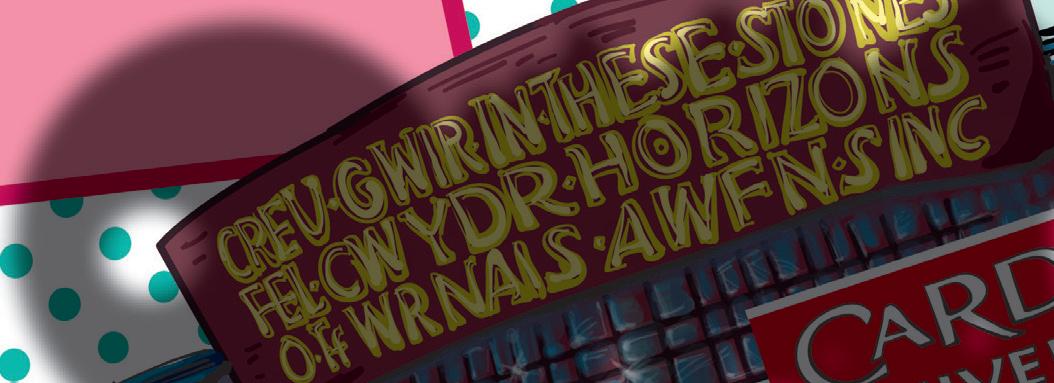
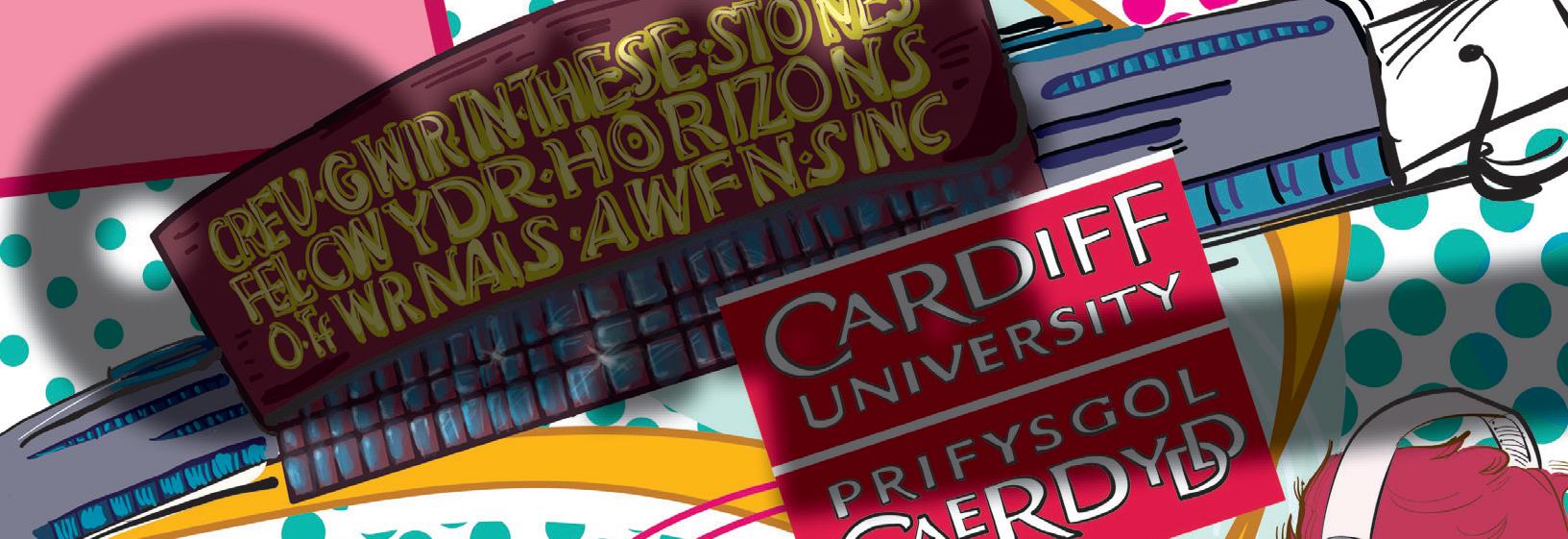









































































It’s estimated that around 630,000 people in the UK are asexual. But what does this mean? Is it linked to the asexual reproduction of microscopic amoebas that split in half to create new amoebas? I’m afraid the answer to that is no. Asexuality is frequently misunderstood so knowing more about asexuality and its increasing visibility will enable us all to better understand relationships in our society and the people we meet. So first of all, what is asexuality? Asexuality is a sexual orientation. An asexual person is a person who does not experience sexual attraction. Like all sexual orientations, asexuality exists on a spectrum, and other people under the asexual umbrella include demisexuals who only experience sexual attraction after forming a strong emotional bond with someone, and grey-asexuals who only experience sexual attraction
rarely. In terms of romantic attraction, some asexuals are aromantic which means they do not experience romantic attraction and seek non-romantic companionship instead. However many people who are asexual do feel romantic attraction and seek romantic relationships. This means an asexual can have any romantic orientation and be hetero-romantic if they are romantically attracted to people of the opposite gender, homo-romantic if they are romantically attracted to people of the same gender and so on. There are a variety of myths surrounding asexuality which need to be challenged. As we have already established, being asexual doesn’t mean you don’t want relationships or can’t fall in love, because in the same way sex can exist without love, love can exist without sex. Secondly asexuality is very different to celibacy which is a conscious choice not to engage in sexual activity, asexuality like all orientations is not a choice and is an absence of
sexual attraction towards people. Some asexuals may have a physical relationship with their partner but it’s very important for each partner to be sensitive about each other’s feelings on the issue. Upon revealing their sexual orientation, asexuals are often told that it’s just a phase they’re going through even though they may have considered themselves asexual for many years. They may be asked inappropriate questions about how they relate to sex and in an over sexualised society, asexuals may feel out of place. In recent years asexuality has been attracting more and more attention within academic circles and in wider society. As long ago as 1948 Dr Alfred Kinsey who created a scale to measure sexuality from 0 for exclusively heterosexual to 6 for exclusively homosexual also included an X on the spectrum for those individuals who did not experience sexual attraction. A 1994 UK study put asexual prevalence at 1% of the population and new studies continue to
be funded.
In more recent years the rate of progress has increased. The American asexual activist David Jay set up the Asexual Visibility and Education Network (AVEN) website in 2001, which now has over 70,000 users. In 2009 AVEN inspired sections in pride parades started to appear in the US and UK and now more widely. In popular culture, many also consider Sheldon from The Big Bang Theory and Sherlock to be Ace (asexual nickname). The 2011 documentary, (A)sexual chronicled and examined the ace community’s growth. In 2013 the Huffington Post published a prominent six part series of articles on the ace community and every October Asexual Awareness Week is held internationally. Asexuality has legal protection in the US states of New York and Vermont, and the UK government recognised it in their 2012 action plan for reducing hate crime.
Asexuality has yet to fully break into the public consciousness, al-
though the increased media attention, academic interest and visibility of the community suggests real progress is being achieved. As we move forward, comprehensive sex education that recognises the broad nature of sexuality, tackling bullying to make our schools and work places safer and comprehensive education for healthcare professionals as well as shared campaigning with the rest of the LGBT+ community for acceptance should help Asexuality to find its place as a widely recognised and unremarkable orientation in our society.
Here at Cardiff University the LGBT+ Society and the LGBT+ Association recognise asexuality as a vital part of the + and ace students as valued members of our community. During February which is LGBT+ history month the Association will ensure asexuality is part of our efforts to raise awareness on campus, and hopefully this article has gone some way to raising that awareness.












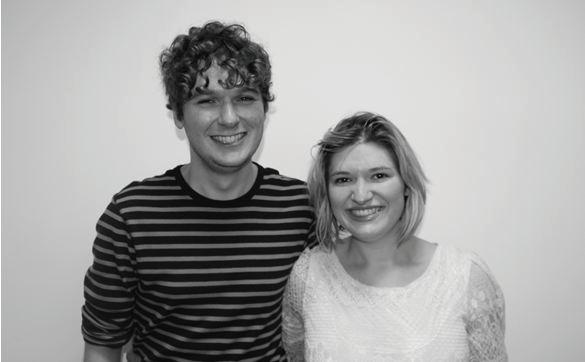
Sally Cross
How are you finding your role as Head of Speech and News?
I love being the speech program controller, I have met so many amazing people, even two of my best friends just by having this role!
What are you enjoying the most?
Having done a speech show for three years, I love passing on my passion to others and helping people out.
So far, what have you been most proud of?
I’d say so far I’m most proud of all the speech shows! Everyone has been so enthusiastic and has just immersed themselves in their shows! I love listening to all the speech shows. I feel like they all have the same passion I do and it’s great to know I’ve helped create that!
What can we expect from Speech this term?
It’s going to be a big term for speech! We’ve got lots coming up! The next comedy panel show is on the 25th so look out for that to be aired! Also with elections we will be doing a lot of interviews with the candidates to breakdown their manifestos and help you to decide who to vote for. Also, not to mention varsity! I’m so excited to do the coverage and work with the Xpress team - we all work so well together and I know everyone is going to get so involved!
Tell us a bit about your show
It’s a film and TV review show on Thursdays at 1pm - 2pm we have quizzes for every film and TV geek out there as well as reviewing the latest films of that week! Look out for a special Oscars week!

!

SAM THING FOR THE WEEKEND SATURDAYS 2-3PM
HISTORY BOYS MONDAYS 4-4 PM
Join Jess and KIeran for Political Breakdown, talking about the issues that matter to you. Not only will they bring you the biggest national stories of the week, Political Breakdown lets you share your opinions and get your voice heard about issues in Cardi . What matters to you? What politics issues do you want to hear about? Make sure you tune in to have your say!
Sam Lloyd and producer Alice Crabtree aim to give you the best Saturday ever. From booking a Valentine’s Day meal at Burger King, to making a pe- riod drama from erotic ction, you never know what to expect! Tune in and join the fun!
TOM AT TEN MONDAY 10 AM
INTERNATIONAL BEAT FRIDAYS 6-7PM
According to the Xpress website, this show is : ‘Tom Eden, VP Head of Expedia & Gardening, keeping you up to date on horticulture and botany from around the world...at ten. ‘ In fact, the show almost as random as this description. It’s usu- ally a spontaneous look at the week’s student media, tangents and an embarrassing platform to expose Tom’s lack of musical knowledge (he’ll often resort to playing the Red Hot Chilli Peppers...)
International Beat with Tia and Amel is a great way to start the weekend . Every week the girls have a di erent international student from across the globe to talk culture, food and music. Each week get a new taste of a new place with every guest! From France to Wales, the girls will help you explore the globe without even leaving the house!
Tom’s co-host, Jess McFarlane, is the self proclaimed ‘interesting one‘, which isn’t di cult when Tom is almost certainly in a zombie-like state each Monday morning after the weekend’s antics.
BRINGING BACK THE BLUES THURSDAYS 7-8PM
I S T
Alice presents a really interesting show which looks at New folk music. Her chilled out style is great to listen to as she introduces you to new bands and artists that you may not have heard before, as well as playing some better known folkies such as Johnny Flynn and Stornoway. Alice also does regular live sessions with local and up-and-coming artists, what’s not to love?
THE HOUSE HOUR MONDAYS 10-11PM
Wyn, George and Tom bring you the latest house music every Monday, as well as promoting new releases, and local gigs and artists. They also play a mix of other genres, such as techno and garage, so there’s really something to suit whatever mood you’re in on a Monday evening.






















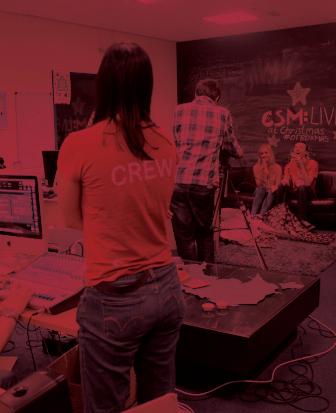
























It’s a busy week for CUTV. We’re still working hard at our NaSTA (National Student Television Association) award entries as well as putting together our regular shows so that you don’t miss out on anything. Check out our listings below to see what’s coming up this week!
Another of our big projects is a joint venture with the Community Channel: Do Brilliant Britain. We’ve been working with projects around Cardiff to help inspire people to do something brilliant. Our work will be broadcast online and on Freeview in late March.
If you like the sound of what we do, then join us and become a member! We organise regular trips, our next one is to London to sit in the audience of The Wright Stuff, you can gain great experience with professional camera and live equipment and most importantly, it’s a lot of fun!
If you want a better idea of what we do then come along to our monthly meeting and training evening. On Monday 3rd March at 6pm in CF10 we will be doing a whole host of activities about presenting, camera work and creating show ideas. There is also an opportunity to get some hands on experience with our equipment and meet other CUTV members.



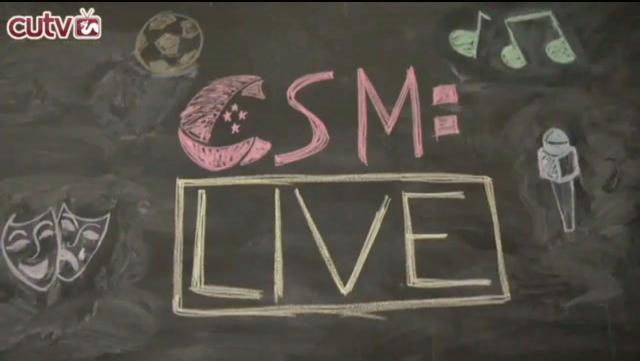





This week on CUTV NEWS we give the usual overview of all the stories a ecting Cardi University students. There’s also an extended look at the problems some Bulgarian and Romanian immigrants face, and have faced, here in the UK. We’re also looking for people to join our LIVE production team. Want to experience the buzz involved with working on a show that is streamed live online every week? Get in touch with Cardi Union TV and get involved!
This week is CSM Live’s 25th episode and we’ll be looking back at some of CSM’s best bits. We will also be bringing you a sneak preview of the latest episode of Turn It Up as an Xpress Radio feature, showcasing what goes into the creation of a quality radio show. We’ll also profile Cardi University student Coral Kennerly, who has qualified for the Commonwealth Games as part of the Welsh team. Plus tune in to see our regular presenter challenge.
This week we’ll look behind the scenes at Xpress Radio showing you what it takes to plan, produce and broadcast your own show. We’ll also be going along to Refugee Rhythms, a charity concert that aims to raise funds and awareness for refugees and asylum seekers living in the UK. Our coverage building up to the Live Music Society’s Battle of the Bands continues as we interview The Starling Radicals as well as Animal Brothers about making it through the first heat. Plus we caught up with the gorgeous girls from Vanquish before their gig in Solus supporting M.A.D.

Mae Bwrdd Cyfarwyddwyr y Coleg Cymraeg Cenedlaethol wedi cyhoeddi mai Andrew Green fydd Cadeirydd newydd y bwrdd. Bydd yn cychwyn ei swydd ar 1 Ebrill ac yn olynu’r Cadeirydd presennol, yr Athro R Merfyn Jones. Yn dilyn y newyddion, cwestiwn perthnasol i ni fel myfyrwyr yw ystyried rôl y Coleg Cymraeg Cenedlaethol yn ein bywydau academaidd ninnau. Dyma swyddogaeth y Coleg yn ôl ei gwefan: Prif nod y Coleg yw cynyddu, datblygu ac ehangu cyfleoedd astudio drwy’r Gymraeg ym mhrifysgolion Cymru. Mae’r Coleg yn adeiladu ar waith blaenorol y Ganolfan Addysg Uwch Cyfrwng Cymraeg gan weithio gyda phrifysgolion i ddatblygu partneriaethau cydweithredol effeithiol, sicrhau mwy o gyfleoedd i fyfyrwyr astudio drwy’r Gymraeg, hyfforddi cenhedlaeth newydd o ddarlithwyr i’r dyfodol, yhghyd â chyllido modiwlau ac adnoddau o’r radd flaenaf i’r sector addysg uwch cyfrwng Cymraeg. Mae’n siŵr bod sawl un ohonoch fel ni’n dau yn holl gyfar-

Steffan Bryn Jones
Cyfrannwr Taf-Od
Ataliwyd gweision sifil sy’n gweithio yn swyddfeydd rhanbarthol Llywodraeth Cymru yng Nghyffordd Llandudno rhag cyrraedd eu desgiau ddydd Llun diwethaf, o ganlyniad i brotest gan ymgyrchwyr iaith. Fe alwyd yr Heddlu wrth i chwe aelod o Gymdeithas yr Iaith Gymraeg ffurfio llinell a gosod cadwyn fetel ar draws prif fynedfa’r swyddfeydd, sy’n bencadlys i’r Llywodraeth ddatganoledig yn y Gogledd.
Noda’r brotest ddiweddaraf hon drobwynt yn ymgyrch Cymdeithas yr Iaith Gymraeg, a’i haddewid ers Chwefror 1af i ddechrau cyfnod o weithredu uniongyrchol yn erbyn
Llywodraeth Carwyn Jones, am yr hyn a alwant yn “fethiant” i ymateb i ganlyniadau siomedig Cyfrifiad 2011 a dirywiad yr iaith yn genedlaethol. Eisoes, mae’r Gymdeithas wedi gosod baneri â’r slogan “GWEITHREDWCH” ar chwe phont ledled y wlad – gan gynnwys y bont yng nghanol Caerdydd ger y stadiwm- ynghyd â chynnal Rali’r Cloeon tu allan i swyddfeydd y Llywodraeth yn Aberystwyth. Ond, dyma’r enghraifft gyntaf o weithredu uniongyrchol yn erbyn y Llywodraeth a’i staff gan y mudiad iaith ers y Cyfrifiad. Yn sgil cyhoeddi canlyniadau’r Cyfrifiad hwnnw, gosododd Gymdeithas yr Iaith Gymraeg her ar i’r Llywodraeth Lafur ym Mae
wydd â gwaith y Coleg Cymraeg Cenedlaethol trwy eich astudiaethau. Efallai eich bod wedi derbyn ysgoloriaeth gan y Coleg ar yr amod y byddwch yn astudio rhannau o’ch gradd trwy gyfrwng y Gymraeg. O’n profiad ninnau’n bersonol, prin yw’r ddarpariaeth a gynnigir gan y Coleg yn adran Wleidyddiaeth y Brifysgol. Er hynny,, roedd darpariaeth y Coleg Cymraeg yn adran y Gyfraith yn gadarnhaol iawn yng nghyfnod un ohonom yn adran y Gyfraith yn y flwyddyn gyntaf. Cynhaliwyd tiwtorialau trwy’r Gymraeg gan ddarlithwyr a ariannwyd gan y Coleg Cymraeg Cenedlaethol a rhoddwyd pob cefnogaeth i’r myfyrwyr a ddymunai gyflawni eu gwaith trwy’r Gymraeg. Beth yw eich profiad chi o ddarpariaeth y Coleg Cymraeg Cenedlaethol ym mhrifysgol Caerdydd? A yw’r ddarpariaeth yn ddigonol? Cysylltwch: tafod@gairrhydd.com
Anna George Cerith Rhys Jones
Caerdydd weithredu mewn chwe maes polisi: Addysg, ac yn benodol diddymu ‘Cymraeg ail-iaith’ gan fynnu bod pawb yn derbyn canran o’i haddysg drwy’r Gymraeg, fel yr argymhellir mewn adroddiad gweithgor diweddar; Cynyddu’r defnydd o’r Gymraeg fel iaith weinyddu fewnol o fewn y sector cyhoeddus drwy ddilyn esiampl presennol Cyngor Gwynedd; Cyhoeddi safonau iaith clir i’w gweithredu gan y Comisinydd Iaith; Rheolau llymach ym maes cynllunio; Newidiadau i’r modd y caiff y Gymraeg ei hariannu ac ystyried y Gymraeg o safbwynt datblygu cynaliadwy. Yn ymateb yn fuan wedi’r brotest wythnos diwethaf, hallt oedd beirniadaeth Robin Farrar, Cadeirydd Cymdeithas yr Iaith, o ymateb y Llywodraeth: “Rydyn ni’n grediniol y gall ein hiaith unigryw ffynnu dros y blynyddoedd i ddod gydag ymgyrchu cadarnhaol ac ewyllys gwleidyddol. Ond mae argyfwng real yn wynebu’r Gymraeg, a dyw Llywodraeth Cymru ddim yn ymateb o ddifrif. Yn lle newid polisïau a chyflwyno rhai newydd, rydyn ni wedi gweld mwy o’r un peth gan Carwyn Jones a’i Lywodraeth. Yn wir, unig syniad newydd Carwyn Jones yw ymgyrch i annog pobl i ebostio pum gwaith y dydd yn Gymraeg, er nad yw’n gwneud hynny ei hun. Ni allem ymddiried yn y Llywodraeth a nifer o’u uwch swyddogion I flaenoriaethu’r newidiadau i’r system gynllunio a’r gyfundrefn addysg fyddai’n angenrheidiol i
gynnal y Gymraeg. Yn hytrach na dangos arweiniad cadarnhaol, mae’r Llywodraeth Lafur yn adweithio’n segur unwaith eto. Os parhawn dan weinyddiaeth ddiog, welwn ni ddim twf cadarn yn ein hiaith.”
‘Siomedig’ Mewn ymateb i’r brotest a beirniadadeth y Gymdeithas, dywedodd llefarydd ar ran Llywodraeth
Cymru: “Rydym yn siomedig iawn bod Cymdeithas yr Iaith wedi penderfynu gweithredu yn y modd hwn, yn enwedig gan ein bod ni wedi cynnal deialog rheolaidd, ac adeiladol, gyda’r gr�p.Dros y flwyddyn ddiwethafaf rydym wedi cymryd camau cadarnhaol i hyrwyddo’r iaith Gymraeg, gan gynnwys camau pwysig fel cyhoeddi safonau arfaethedig i wella gwasanaethau Cymraeg i bobl.Nid ni yn unig sy’n dweud hyn – dywedodd arbenigwyr Cyngor Ewrop yn ddiweddar bod Llywodraeth Cymru yn darparu ymrwymiad cryf i’r iaith.” Yn ychwanegol i gyhoeddi’r safonau iaith arfaethedig, mae’r Llywodraeth yn dadlau bod ei hymrwymiad i’r Gymraeg yn gadarn gan nodi’r £90,000 o arian ychwanegol a gaiff yr Eisteddfod Genedlaethol eleni a’r gofynniad statudol diwygedig ar Gynghorau Lleol sydd yn ei gwneud hi’n ofynnol iddynt fesur y galw am addysg Gymraeg, fel tystiolaeth o’r ymrwymiad hwnnw. Dywed Robin Farrar, Cadeirydd Cymdeithas yr Iaith nad yw hynny yn ddigon ac addawodd y byddai’r Gymdeithas yr parhau a’i hym-
gyrch yn erbyn y Llywodraeth: “Ers dros flwyddyn, rydym wedi llythyra, cynnal cyfarfodydd, cymryd rhan mewn cynadleddau a trafodaethau di-ri gyda’r Llywodraeth. Nawr, trwy’r anufudddod dinesig yma, galwn ar Carwyn Jones a’i Lywodraeth i gymryd camau adeiladol a blaengar er mwyn sicrhau bod pawb yn cael byw yn Gymraeg. Byddwn yn parhau i ymgymryd â’r gweithredoedd yma tan i ni weld tystiolaeth o weith-
redu cadarnhaol dros y Gymraeg.” Ydych chi’n cefnogi penderfyniad Cymdeithas yr Iaith i ddechrau cyfnod o weithredu uniongyrchol, gyda’r posibilrwydd o ddefnyddio dulliau tor-cyfraith heddychlon, yn erbyn Llywodraeth Cymru ? neu Ydych chi’n credu y dylent barhau a’u hymdrehchion i lobio neu bwyso ar y Llywodraeth yn anunigyrchol i fabwysiadu eu syniadau? Rhowch wybod drwy Drydar @ Taf_Od.

Melda Lois Griffiths Cyfrannwr Taf-Od
Yng nghanol tymor y seremonïau wobrwyo, nos Sadwrn diwethaf (15/2/14) cynhaliwyd seremoni sydd gyfwerth a’r Oscars neu’r BAFTAs ym myd y Sîn Roc Gymraeg (SRG) - Gwobrau’r Selar. Dyma noson sy’n gyfle i roi clod llawn haeddiannol i holl gyfranwyr triw yr SRG. Yn fwy na hynny, mae’n gyfle i gefnogwyr y sîn ddangos eu gwerthfawrogiad, gan mai pleidlais gyhoeddus sydd yn pennu yr enillwyr. Braf iawn oedd clywed bod y tocynnau ar gyfer y noson wedi gwerthu allan ddeuddydd o flaen llaw, gyda 500 o ddilynwyr cerddoriaeth Gymraeg wedi heidio i Neuadd Fawr Aberystwyth. Gallai ‘sgwennu hefo cryn falchder mai Candelas, y band roc o Lanuwchllyn (lle da), oedd sêr y noson, wrth iddynt gipio hatrig o rai o brif wobrau y noson. Yn ennill “Can Orau 2013” oedd eu can “Anifail”, sydd i ddweud y gwir yn dipyn o fwystfil, gyda’i riff trwm adnabyddus wedi achosi i sawl person dynnu ambell i gyhyr yn eu gyddfau wrth “headbangio” yn y rhes flaen. Wedi’r hir ymaros am eu halbym cyntaf, doedd fawr
o neb wedi synnu pan gyhoeddwyd mai honno oedd “Record Hir
Orau 2013”. Yn dilyn y llwyddiant hyn, roedd hi’n naturiol mai nhw fyddai’n hawlio’r teitl “Band Gorau 2013” hefyd. Bu 2013 yn flwyddyn hynod o lwyddiannus i’r criw cyrliog o Benllyn, felly. Os nad ydych chi wedi gwrando ar eu cerddoriaeth nhw eto, gwnewch –r�an!
Mae’n rhaid bod cerddoriaeth yn llifo yn y system ddwr yn Ne Gwynedd, gan bod S�nami, band arall o’r ardal wedi cael noson lwyddiannus iawn hefyd. Daeth “Du a Gwyn”, E.P. pum can y band i’r brig yn y categori “Record Fer Orau” – dyma gasgliad o ganeuon sydd yn pwysleisio bod safon cerddoriaeth “indie” Gymraeg cystal, os nad gwell na beth sydd gan fandiau Saesneg i’w gynnig. Mae poblogrwydd eu riffs gitâr bachog i’w weld yn glir o ymateb y dorf yn unrhyw un o’u gigs. Enillodd y band wobr arwyddocaol iawn hefyd – nhw oedd y cyntaf i ennill y categori newydd sbon “Fideo Cerddoriaeth Gorau”. Yn y fideo ar gyfer eu cân “Gwreiddiau”, gwelir y band yn trio cario ‘mlaen i ganu heb gael llond ceg o baent powdwr – cerwch i wylio’r fideo ar YouTube i ddeall yn well.
Llwyddodd Lisa Gwilym i amddiffyn ei safle fel “Cyflwynydd Gorau” Cymru – hon ydy’r drydedd flwyddyn iddi ennill y wobr hon, gan wrthsefyll cystadleuaeth gan enwau mawr fel Huw Stephens. Nid Lisa oedd yr unig ferch i weld llwyddiant chwaith – tair merch ddaeth i frig y categori “Artist Unigol Gorau”, sef Casi Wyn, Kizzy Crawford, ac yn ennill, Georgia Ruth, yn dilyn llwyddiant ysgubol ei halbym “Week of Pines”. Er i Kizzy Crawford fethu allan yn y categori yma, mae’n siwr bod ennill y categori “Band neu Artist Unigol Gorau” wedi lleddfu’r boen rhyw fymryn. Bu 2013 yn flwyddyn agoriadol wych i yrfa Kizzy, wrth iddi guro Brwydr y Bandiau 2013, cefnogi Newton Faulkner, ac efallai gwelodd rhai ohonoch chi hi yn chwarae yn Nawns Rhyng-gol 2013 hefyd.
Yr Ods a gipiodd y wobr am y gwaith celf gorau, ar gyfer clawr eu halbym newydd “Llithro”, sy’n addasiad cynnil a chreadigol o fap O.S. Nyth hawliodd yr enw hyrywddwyr gorau, ac yn ennill y categori “Digwyddiad Byw Gorau” oedd y meistri eu hunain, Edward H Dafis a’u gig olaf yn ‘Steddfod Dinbych. Roedd y gig yn bendant yn uchafbwynt i’r mwyafrif a fyn-
ychodd Eisteddfod Dinbych, gyda’r dorf enfawr yn fôr o fandanas coch.
Wedi’r gwobrwyo, doedd dim ffordd well i orffen noson mewn neuadd llawn o dalent gorau’r sin, na chael y gorau ohonynt i ddiddanu’r dorf gyda’u cerddoriaeth a brofodd i fod mor llwyddiannus yn 2013. Swynodd Casi Wyn a
Kizzy Crawford y gynulleidfa, cyn i’r Eira, Bromas, S�nami a Candelas gynhesu’r dorf ar gyfer perfformiad olaf y noson gan Yr Ods. Mae’r amrywiaeth o artistiaid a enillodd glod yn ystod y noson yn newyddion calonogol iawn i’r sîn, ac yn bortread arbennig o’r flwyddyn gerddorol wych a fu. Tybed pwy ddaw i’r brig yn 2014?


Mae Cymdeithas Plaid Cymru wedi gofyn wrth Taf-Od i gyhoeddi y cynhelir Cyfarfod Cyffredinol Blynyddol Plaid Cymru Ifanc yn ystod Cynhadledd Wanwyn y Blaid yng Ngwesty’r Holland House ar Newport Rd am 4.30 pm ddydd Sadwrn Mawrth yr 8fed. Y CCB yw cyfle blynyddol aelodau ar draws Cymru i drafod polisi a syniadau, ethol Pwyllgor Gwaith newydd, ac, wrth gwrs, i gymdeithasu. Cysylltwch â chadeirydd y gymdeithas, Daniel Roberts, ar RobertsD18@caerdydd.ac.uk neu plaidifancyouth@gmail.

National Student Money Week is at your Students’ Union in February and March with events and information about your student finance and making it stretch as far as possible. Look out for the events at the Students’ Union, Park Place and the Heath Campus
Would it be better to have student finance paid monthly not termly? We need your opinion: Students’ Union, Park Place (2nd floor) - Monday 24th February, 11am - 2pm Heath Campus, IV lounge - Wednesday 26 February, 12 - 2 pm
Money Doctors aim to increase students’ financial skills and maximise their income
Money Doctors is a partnership initiative between Cardiff University’s Student Support Centre and the Students’ Union’s Advice and Representation Centre
cardiff.ac.uk/moneydoctors or cardiffstudents.com/advice/money-doctors/

Cardiff University Rugby Club are looking for a new Director of Rugby after the news that Martyn Fowler has resigned from his position. Fowler will take up a new role at Cardiff and Vale College from March 25th.
It is unclear at present how much involvement he will have with the Rugby Club for the rest of the season, but gair rhydd un-
derstands that the former Bedwas and Merthyr RFC coach will take charge of Cardiff for the upcoming Varsity match at the Millennium Stadium on April 9th.
Despite his decision to leave, however, Fowler believes that the structure is very much in place to allow the University’s rugby players to continue to develop and play at a higher level.
“We are essentially an academic institution and one of the mainstays during my time at the Univer-

sity was that the academics had to come first,” admitted Fowler.
“In the eight years that I’ve been here, we’ve produced 172 semi-pro players, so the programme here works.
“It could have been a lot more, however, if there was a mechanism to increase contact time.”
Fowler, who has also departed from his role as Director of Rugby of Principality Premiership side Cardiff RFC with immediate effect, believes that a number of the University’s current players can go on to play professional rugby. Fowler cited Varsity captain James Thomas and Ospreys flanker Arthur Ellis in particular as exciting future prospects.
With eight years of hard work, the man who has been the face of Cardiff University’s rugby set-up has many fond memories to look back on. His son, Aaron, lifted the Varsity trophy back in 2009.
Since Fowler took on his current role in 2006, he has overseen some fairly big changes, not least in improving the University’s quality of rugby and creating an environment whereby Cardiff’s young players can give themselves the best opportunity of going further in the game.
“When I first came to the Uni-

versity, the 1st XV were playing in Division Two. We are now a Premiership side by right.
“Another thing I’m pleased with is how players are actively seeking to come to Cardiff University because of the rugby programme.
“I think that would be my lasting legacy. We have gone from a University club with a strong social culture, to a University rugby club with a high performance-based culture.”
Fowler is already looking ahead to his new challenge at Cardiff and Vale College.
“For me, the opportunity to work with the new, young, talented players in the Blues region and to play a small part in their development was an opportunity that I couldn’t refuse,” he explained.
“The first goal is to achieve an ‘A’ licence to give the College the right to play in the new WRU Colleges League every Wednesday.
“The fact that I am prepared to leave two world-renowned institutions in Cardiff RFC and Cardiff University indicates the potential of Cardiff and Vale College.”
Friday 9th May 2014 6:30pm,
Champagne Reception, 3 Course Meal, Awards Ceremony, Entertainment & After Party! Earlybird tickets available for £25 until 7th March Tickets priced at £30 thereafter until 4th April Tickets available at cardiffstudents.com

Eliza Nicholas
Sport Writer
ful lacrosse. Joakin Schuwer, Chris Blood, James Tilley and another two from Quarry completed the romp for Cardiff.
Ellie van Klaveren
Sport Writer
effort, blocking Nottingham’s attacking moves and forcing them to move the ball around.
Plymouth Marjon ………………. 1 Cardiff
9
Cardiff men’s lacrosse played Plymouth Marjon for the third time this year, once again returning with a victory to secure top spot in Western Conference 1A.
After a long journey to Plymouth in dire weather, play was slow for Cardiff in the first quarter, with the opposition scoring within the first 10 minutes. However, Cardiff were quick to respond, with two goals by Charlie Quarry making the score 2-1 at the end of the first quarter.
Once again, Marjon were dominant at the start of the second quarter, maintaining possession with a period of impressive lacrosse. An equally strong Cardiff defence ensured no goals were scored by Marjon, but finished for half time with a superb goal from Cardiff’s Paul Chapman.
The second half of the game saw Cardiff tighten up their play and demonstrate their usual skil-
The visitors’ defence remained resilient, meaning Marjon failed to score again, despite several strong attempts by the home side’s attackers.
The final quarter saw consistently strong lacrosse from both teams, with especially impressive skills from Cardiff’s Will Morris, along with new player Dan Bray and Jack Howe.
Silas Fuller had an unfortunate fall, and the game was terminated early due to the weather, with a final score of 9-1 to Cardiff.
Robert Bowen was named Man of the Match for his determined play in the face of strong marking oppositions. The result leaves Cardiff with an unassailable lead at the top of the league as the season reaches its climax.
CARDIFF: J Ward, R Bowen, S Fuller, D Bray, J Howe, P Chapman, C Quarry, J Tilley, J Schuwer, C Blood, M Lane, J Bodnar-Horvath, M Cork, H King-Oakley, O Teluch
Nottingham ………….....……… 20 Cardiff ………………….………… 2
Last Wednesday, the ladies travelled to Nottingham University to play in the BUCS Championship Last 16.
Cardiff started strongly in attack, winning the first draw which lead to captain Amy Rochford scoring a fast break goal. However, Nottingham came back strongly in attack, scoring a number of goals.
After a timeout, the visitors’ defence regained some composure and showed resilience, forcing Nottingham to take shots from distance.
With some fantastic saves from goalkeeper Cat Williams and a goal from Fiona Tait, Cardiff finished the second half dominant.
However, despite constant turnovers and Williams continuing to make some brilliant saves, Cardiff’s midfield ball movement lacked confidence.
The ladies put in a fantastic
Despite this, however, Nottingham’s attack remained strong and there was little the Cardiff defence could do to prevent the home side scoring.
After another timeout, Cardiff’s passing in midfield improved considerably, but it was too late to close the score line.
The final score was 20-2 to Nottingham. The ladies were disappointed with the final score, feeling that they could have kept the match within reach. Player of the Match was awarded to both Williams and Gabbi Shields for their fantastic defensive efforts.
This was an unfortunate end to an extremely tough season, but the ladies will keep on training hard for the Welsh Varsity and their preVarsity friendlies over the next few weeks.
CARDIFF: A Rochford, A Seaborne, E van Klaveren, G Glennon, G Shields, N Stageman, F Parker, L Gilbert, S Snell, E Bartholemei, F Tait, A Broughton, C Williams
David Hooson Sport Editor
Cardiff University physiology student Amy Radford has been selected to represent Great Britain at the World Junior Championships. It is the next step in a burgeoning international career for the 19-year-old épée specialist.
Radford will travel to Plodiv in Bulgaria to compete at the Championships, which will take place over 10 days in April. She will test her credentials against competitors from across the world in one of the most important events in the fencing calendar.
Her first taste of international competition came at the inaugural Youth Olympic Games in 2010, held in Singapore. Speaking to gair rhydd, she commented: “I reached the quarter-finals against the world’s best young fencers, but the whole experience was amazing!”
Since then, Radford has participated in competitions as far afield as Sweden, Azerbaijan and Malaysia, mostly bearing the financial burden herself.
“I’m really grateful and fortunate to get some funding from the university’s HPP (High Performance Programme), but it’s mostly self-funded,” she explained.
This year, for the first time, British Fencing are paying for their team to travel to the World Championships, but Radford’s immediate priority is the European Junior Championships in Israel.

She will be travelling to Jerusalem later this week, having only recently returned from the Junior World Cup in Slovakia. After that, the senior World Cup event in Barcelona will cap off her preparations for World Juniors.
Currently ranked number one in the British junior rankings and third in the senior rankings, Radford is coy over the reasons behind her success.
“You’d think being left-handed
would be an advantage, but it’s not really,” she said.
“There’s a really high percentage of left-handers in the sport. Some suggest it’s because they have more success earlier and then follow through with the sport.
“But, I must say, I don’t like fencing against other lefties!”
However, in such a tactical sport, coaching undoubtedly plays an important role, as Radford herself suggested: “The best coaches

With time fast running out for Cardiff City to pick up their form and avoid Premier League relegation, Bluebirds fans have been debating the merits of a Premier League struggle compared to last season’s Championship glory.
A year ago to the day, City were leading the Championship table with an eight-point advantage and a game in hand on their rivals. They had scored more than double the amount of goals than they have amounted this term and had picked up just over three times as many points.
The feeling around the club a year ago was of readiness and optimism. Cardiff had dominated the league and, even in February, looked to be cruising towards automatic promotion. However, despite significant outlay on new talent in the summer and plenty of new acquisitions in the January transfer window, that form has not been translated into the Premier League and the mood is now one of doubt and worry. This season has certainly not been without its ups – a win over title-chasing Manchester City in particular demonstrated the club’s ability to compete with the best teams in the league – but, all too often, City fans have been left frustrated by poor spells of form that have seen their club slip down to the foot of the table.
will help you develop. Fencing’s all about finding the angles to beat your opponent.” She poetically summed up the sport as “physical chess”.
Summing up her ambitions for the future, Radford commented: “If there’s anyone out there better than me, I want to improve, and then beat them.”
This attitude surely gives her every chance of success going forwards.
The controversial removal of Malky Mackay and subsequent appointment of Ole Gunnar Solskjær highlighted how results had not been deemed acceptable this term by those in charge at the Cardiff City Stadium. With time not on their side, many observers have tipped City for an immediate return to the Championship.
It must be remembered, though, that City spent many years in the third tier with little progress and with little to get the fans cheering. Now, the stadium fills every week despite disappointing results and Cardiff are competing on the biggest stage for the first time in 50 years – with that perspective, things couldn’t get much better.

Paul Davies Blues Columnist
Recently, the Blues received the news that their captain Matthew Rees would be returning to full-time training after finishing his treatment for testicular cancer.
The hooker has been out of action since October and it is hoped that he will pull on a Blues jersey before the end of the season. Rees himself described the news as “a massive weight off [his] shoulders”, adding that he can now “concentrate on getting back to match fitness”.
Rees is a very experienced player. He is Wales’ most capped international hooker, having racked up over a half-century of caps and played in all three test matches on the 2009 Lions tour. He only joined the Blues in the summer but was awarded the captaincy in pre-season before he’d played a single game for his new team, having proven his leadership abilities when captaining the Scarlets and the national side.
The level of support he has received shows how well respected he is, both as a player and a person. He is affectionately known as ‘Smiler’ and this has led to a fundraising and awareness campaign based around wristbands with ‘Smile for your Captain’ written on them. His teammates added their support by shaving their heads to raise money for the Velindre Hospital near Cardiff, where Rees was treated. This provoked a strong reaction from fans on social media, who have so far helped to raise over £15,000 for the hospital.
The Blues will be anxious to see him back on the field. His 58 international caps demonstrate his status as a top-class player. He can bring valuable qualities to the side – he’s a good ball carrier, a powerful scrummager and a strong physical presence in defence. He can also be relied upon to lead by example and lift the players around him.
The Blues have won only four games out of 14 and have conceded more points than any other team in the league. They need to toughen up and they need stronger leadership on the pitch. Hopefully, Rees can give them that.
One of the most frustrating things about playing Ultimate at University is answering the often-repeated question: “What even is Ultimate frisbee?” My go-to response is to compare it to an American football/netball hybrid.
Two teams of seven (or five if you’re playing indoors) start at opposite ends of a rectangular field, roughly half the size of a football pitch. At each end is a marked-out end zone not too dissimilar to American football and the two sides attempt to pass the disc to a teammate who can score by catching it in the end zone that they are attacking.
The player in control of play cannot run with the disc, but may pivot on one foot, and possession changes hands when a pass is intercepted or incomplete.
One of the largest differences between Ultimate frisbee and other sports is the lack of referee. The sport relies on the sportsmanship of the players and invoking the “Spirit of the Game” (a guide for self-refereeing and behaviour on the pitch) to ensure fair play.
Competitive play is encouraged, but never at the expense of the bond of mutual respect between players. Teams are often seen congratulating one another on the sidelines and socialising together.
Our University season opened with two beginners’ tournaments in Manchester and Plymouth, where teams made up primarily of first-year students, representing ‘No Frills’, finished first, second, third and seventh in a spectacular start to the year.
An indoor season precedes the outdoor games and, while the indoor format of the game does not
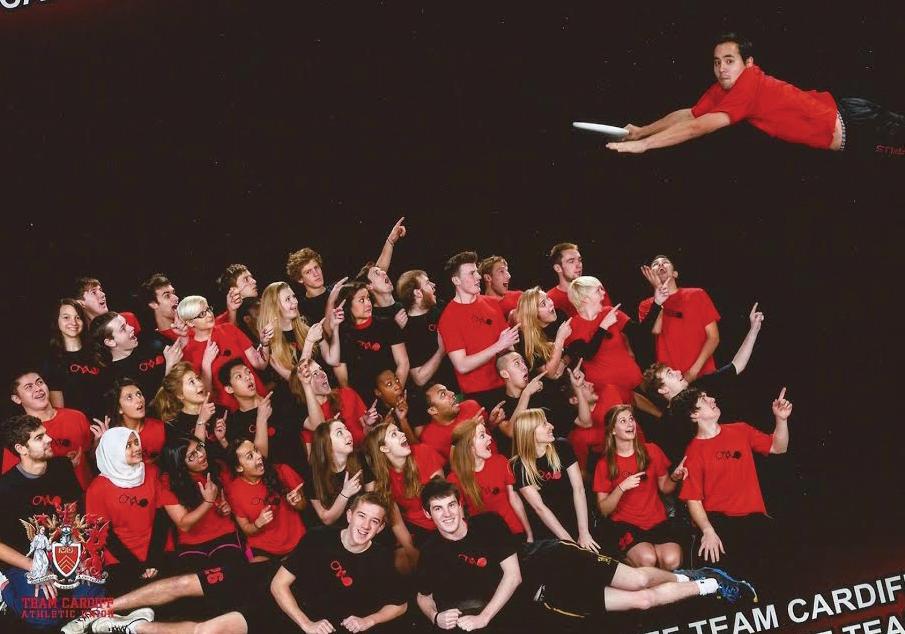
normally suit our style of play, we managed to qualify for Division Two Indoor Nationals after beating Varsity rivals Swansea in a captivating, hard-fought game that went right down to the final buzzer and prompted one opposition player to break down in tears.
Division Two Nationals saw a weakened first-team squad still record a series of impressive results over strong opposition, finishing third overall, having beaten eventual winners Warwick in the pool stages.
A strong recruitment drive this year saw extremely large sign-up numbers compared to previous years – over 100 members and counting.

Our women’s side has already
BALLS, BALLS, BALLS. Two things about the AU Ball. Firstly, award nominations are open online at cardiffstudents.com and I encourage everyone to nominate someone from a club who they feel has contributed greatly to their club’s activity both on and off the playing field.
Secondly, clubs wanting to attend the AU Ball will need to email me with the people on their table and any dietary requirements that they may have. There will be tables of 10 and, if you require an extra table, then you’ll need to tell me. I must stress, though, that ALL tables are allocated on a first come, first served.
Moreover, now that the election nomination deadline has passed, I won’t be bothering you about putting yourself forward for nomina-
begun to reap the benefits with an impressive series of wins in a friendly tournament with Swansea University at Pontcanna Fields. Captain Camille Kostov and her team of relatively inexperienced girls continued their outstanding form by qualifying for the Women’s Indoor Nationals in Dudley, despite having to compete with a number of strong teams in what is arguably one of the toughest regions in the country.
This form bodes well for the future of our side with the women’s side of the game being recognised by BUCS from the next academic year onwards.
Over the coming weeks, men’s first team captain Kei Matsumoto, a previous GB Under-20 interna-
tions anymore. Instead, I’ll be going on about how you need to make sure you vote in the elections. If you’ve ever thought: “I wish the libraries stayed open for longer” or “Our sports club needs new equipment”, then the only way to go about overcoming these problems is to vote. By doing so, you’ll be backing a candidate who can help provide these extra library hours or new equipment.
For the first time in my University career, I won’t be involved in elections at all. In my first and second year, I helped friends with their campaigns and, in my final year, I obviously ran myself. These were some of the best weeks I had in University. While I had barely any sleep, I was able to talk to and have a laugh with different people every day. It was one of the few times of year outside Freshers’ Week where you were encouraged
tional, will look to the veterans of the side – including Mike Walters, currently in his eighth year with the club – to help nurture the large contingent of promising freshers as they look towards the outdoor season.
The outdoor format better suits the club’s athletic style of play and, as such, expectations are high with regional qualifiers just around the corner.
Cardiff University Ultimate Frisbee Club train on Tuesday nights from 9pm until 10:30pm on the 3G at Talybont Sports Village and at Pontcanna Fields on Wednesdays from 2pm and on Sundays from 5:30pm until 7pm. TheycanalsobefoundonFacebook and Twitter.
to talk to complete strangers and, safe to say, I loved it! After three years of involvement, I must admit it’ll be strange to not be involved in a campaign. Of course, as an officer, I’ll still be involved, but, for once, I won’t be one of the people knocking on your doors and telling you about manifesto points. I’ll leave that for this generation of election candidates!
Finally, I’d like to congratulate Snowsports on an excellent bunch of results from their Kings competition in Gloucester last weekend. Our board team won, guaranteeing them a spot in the finals. The third team also put in a remarkable shift, finishing better than our other teams and coming in an excellent fifth place.
